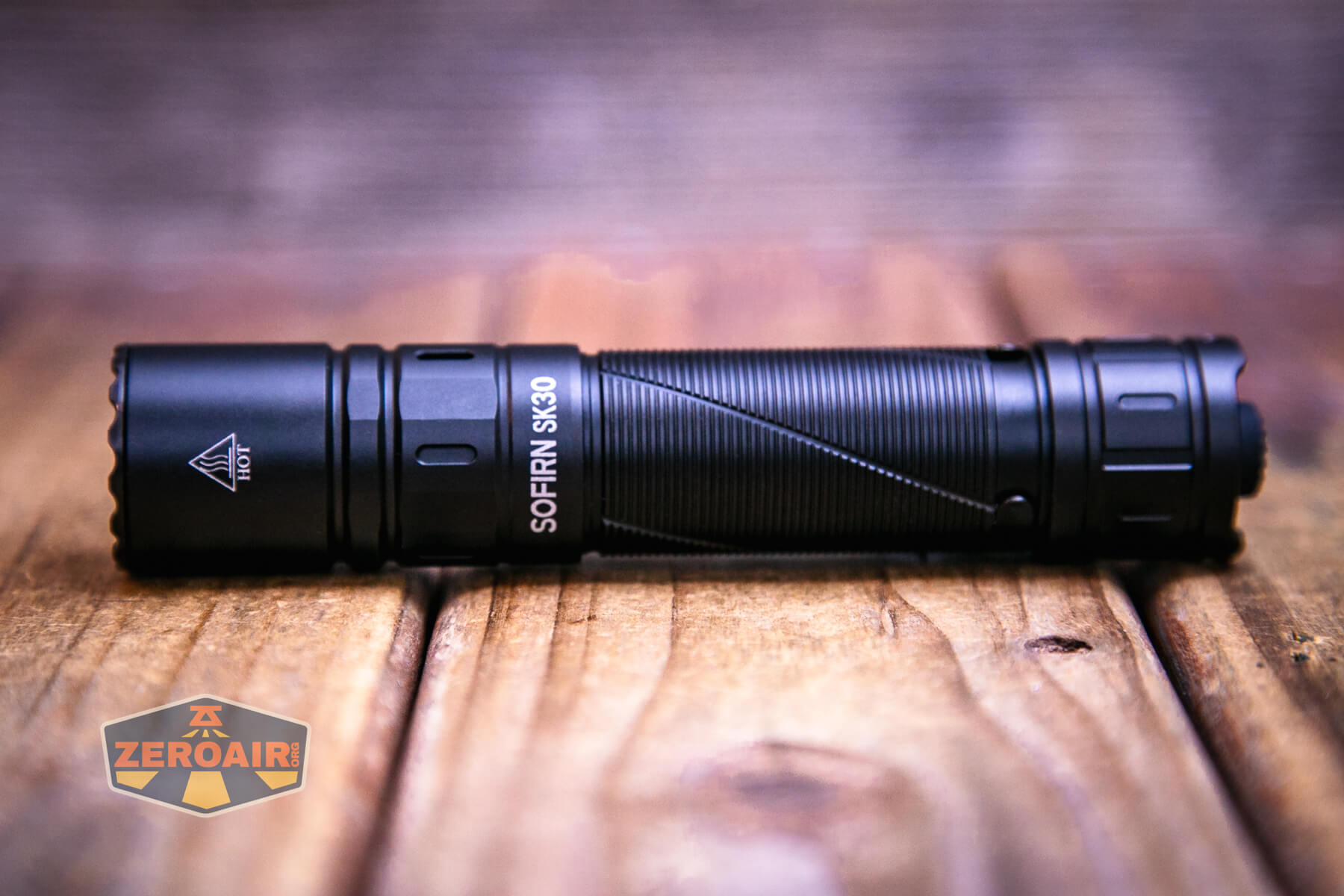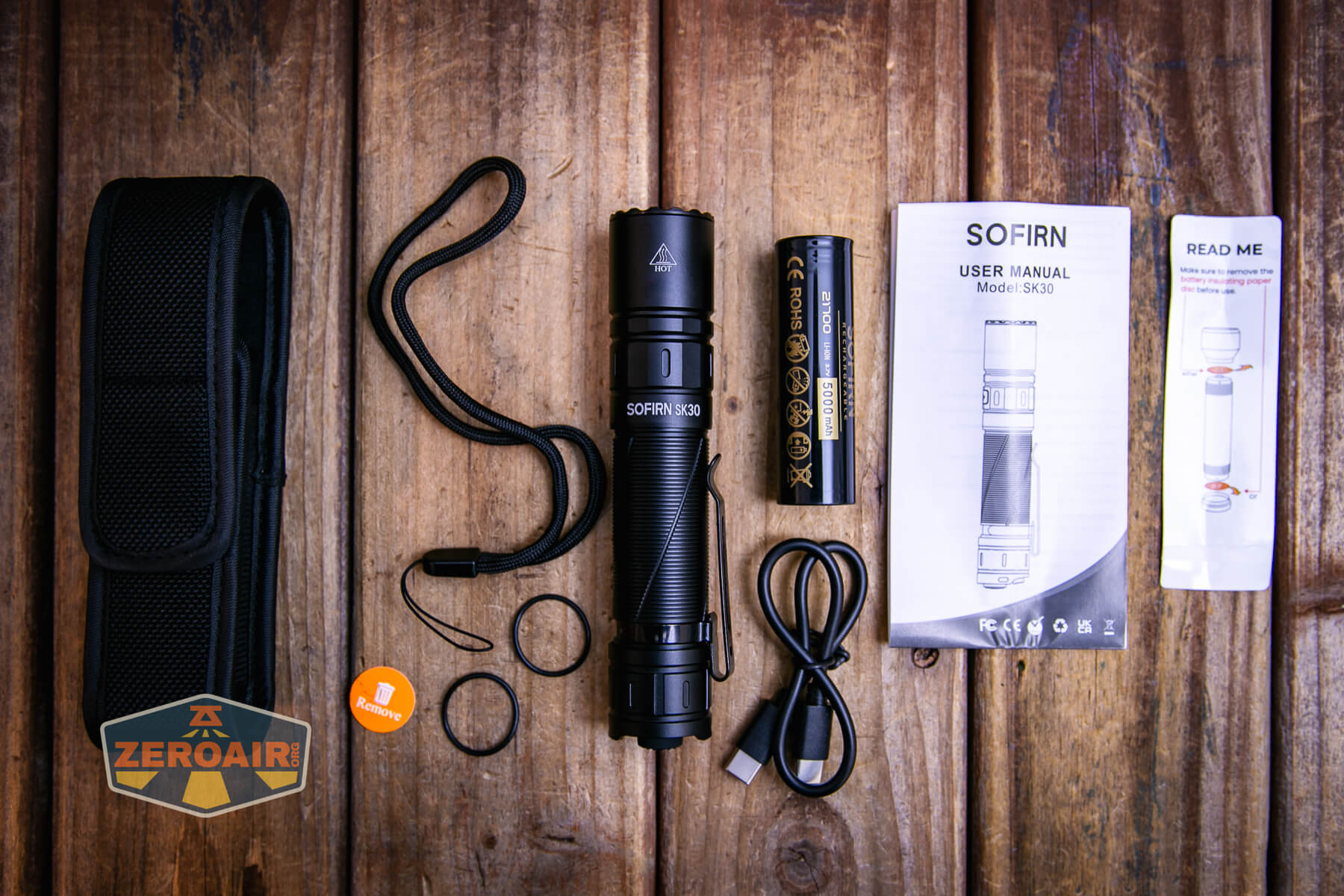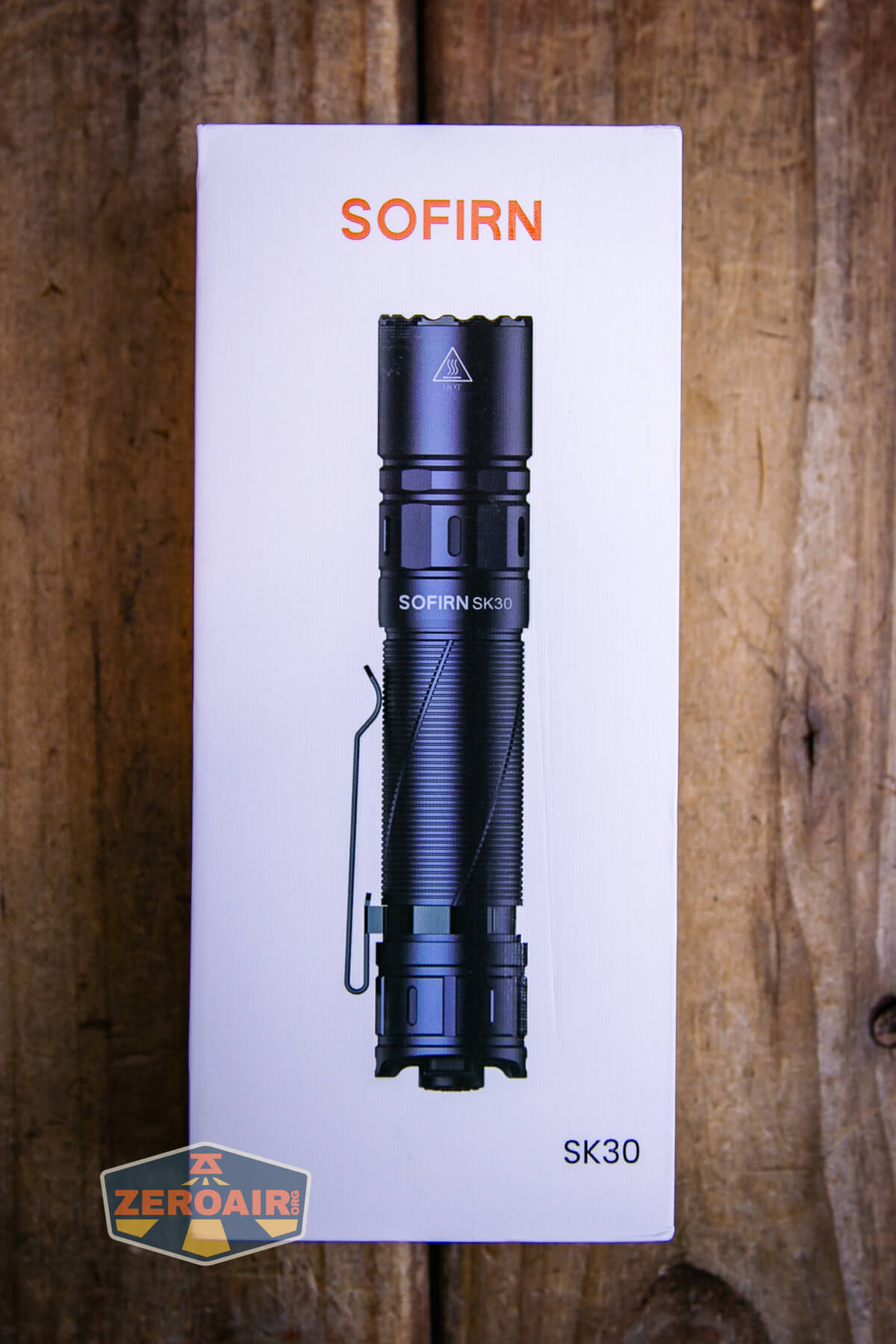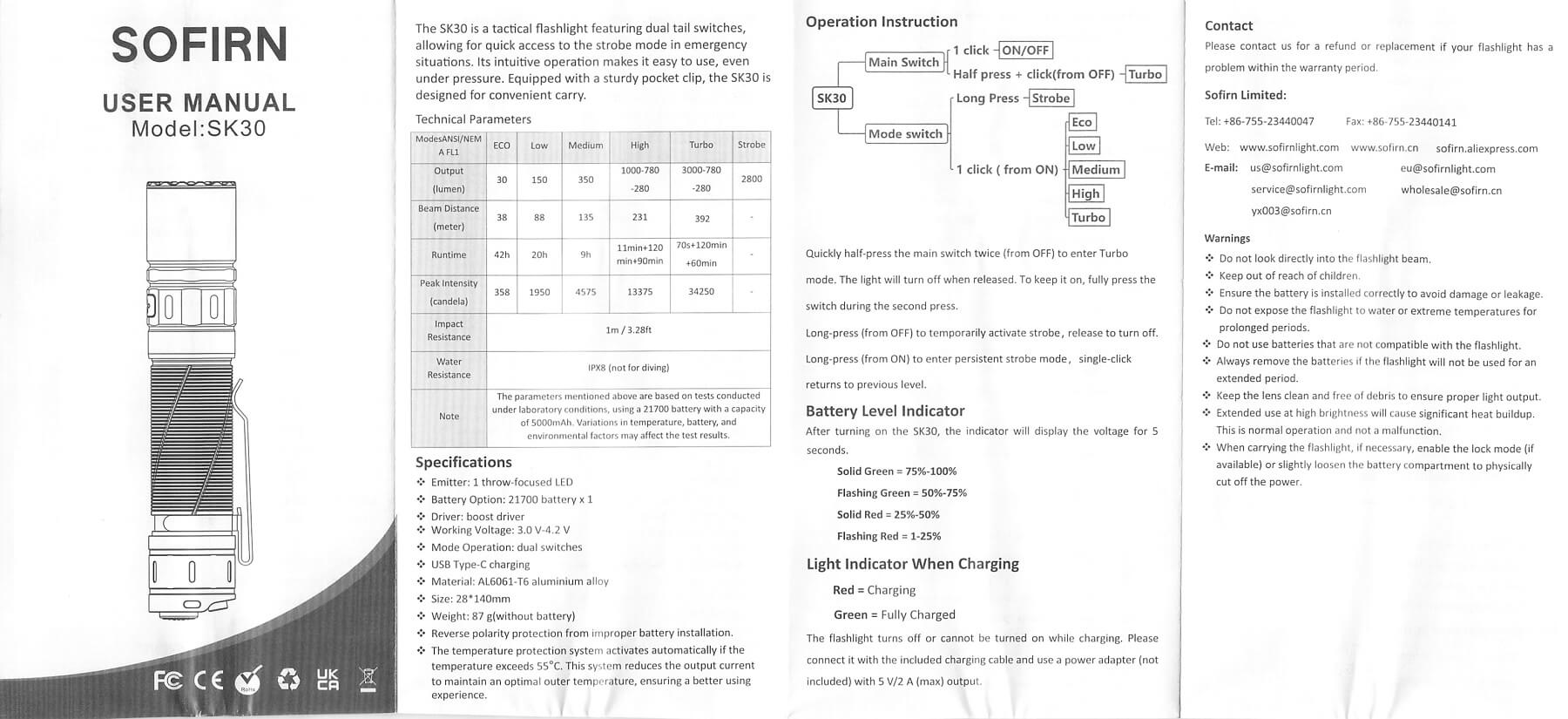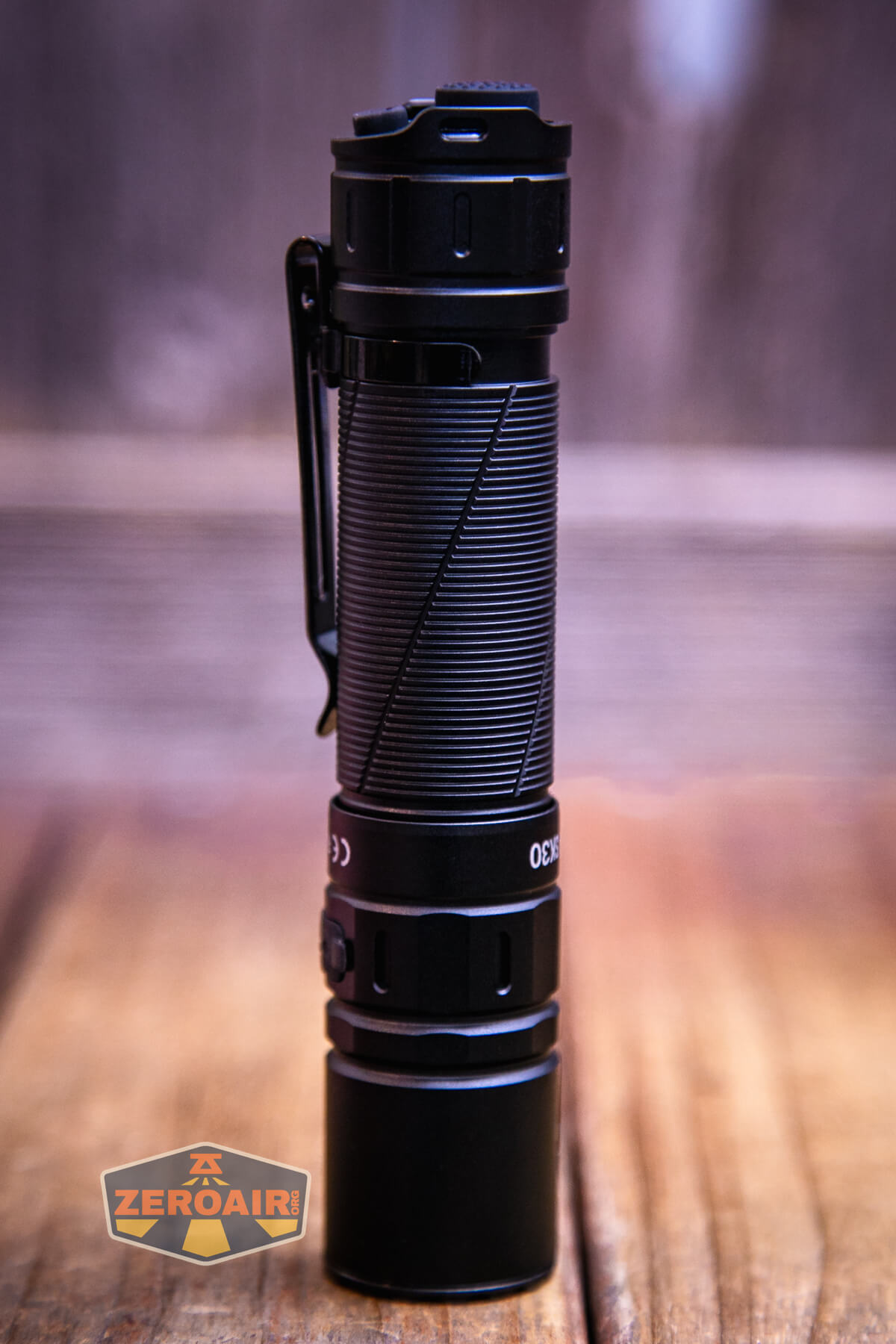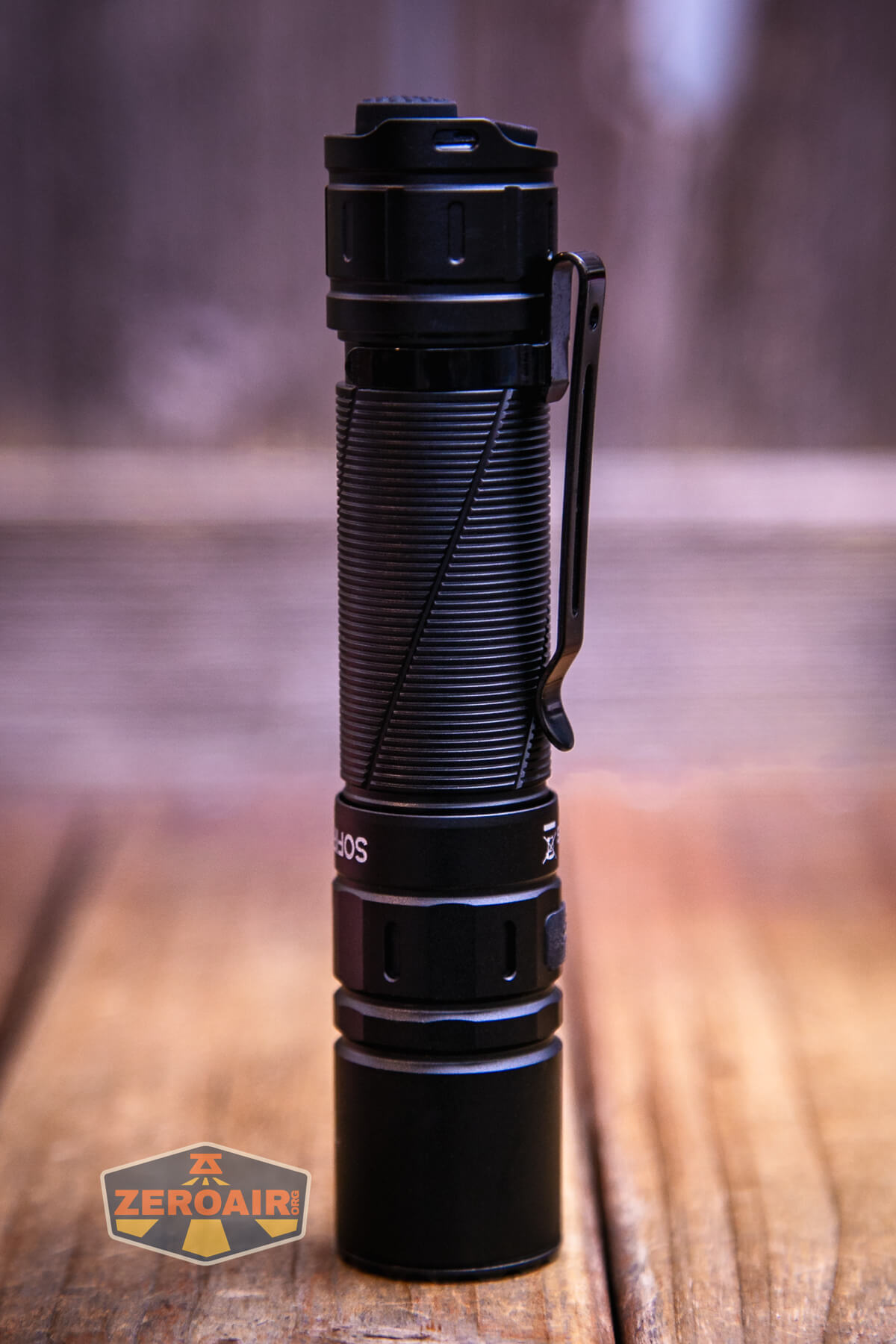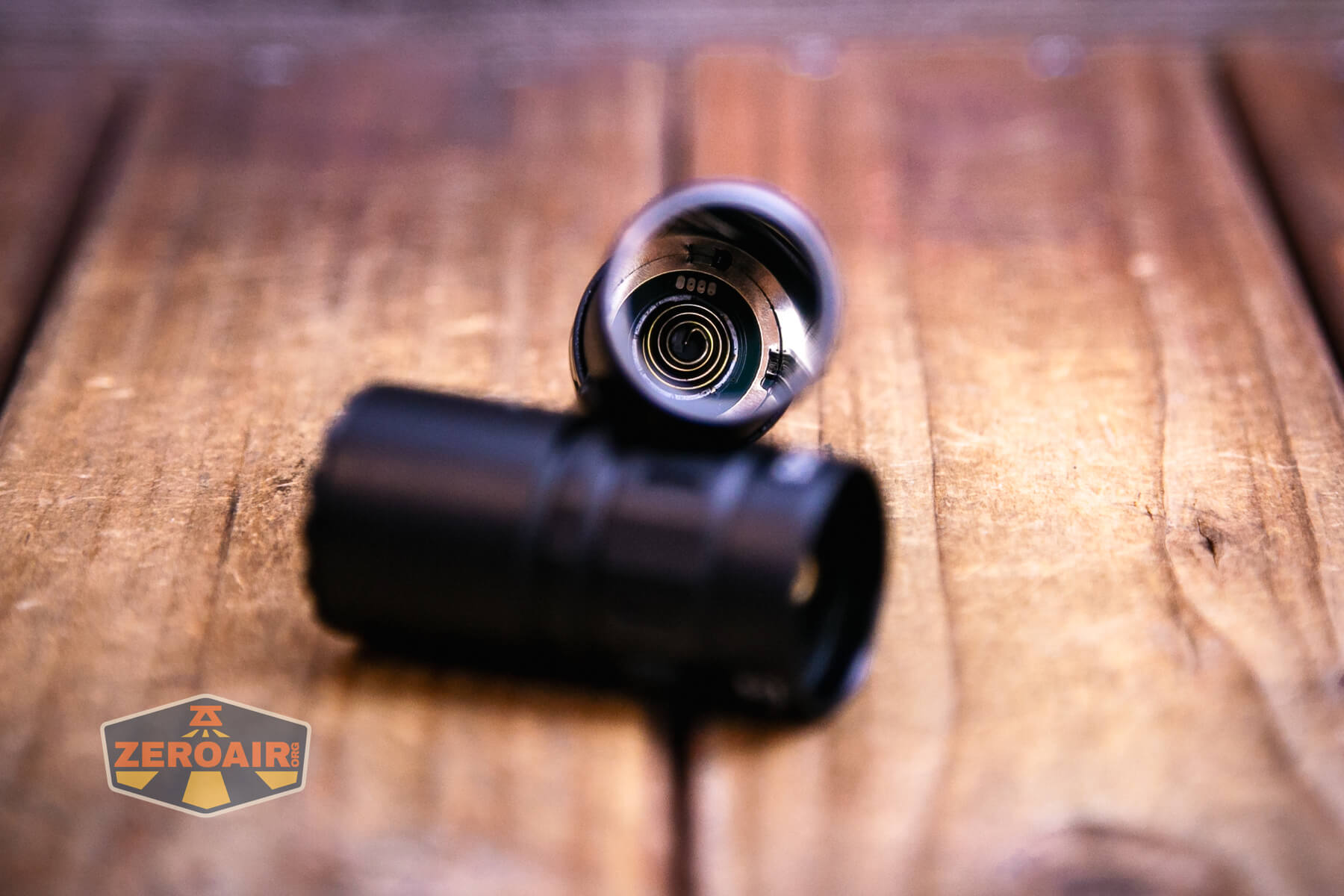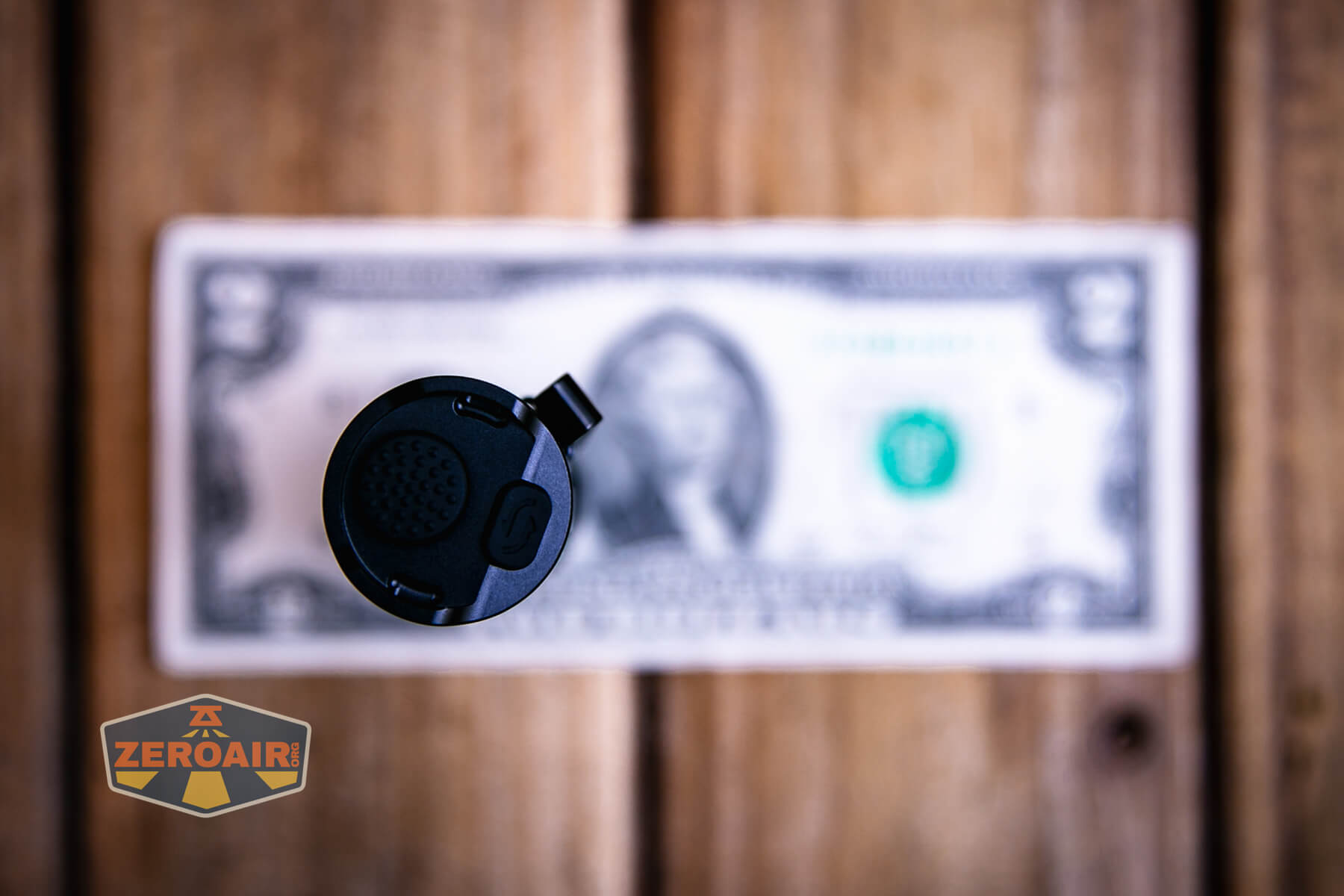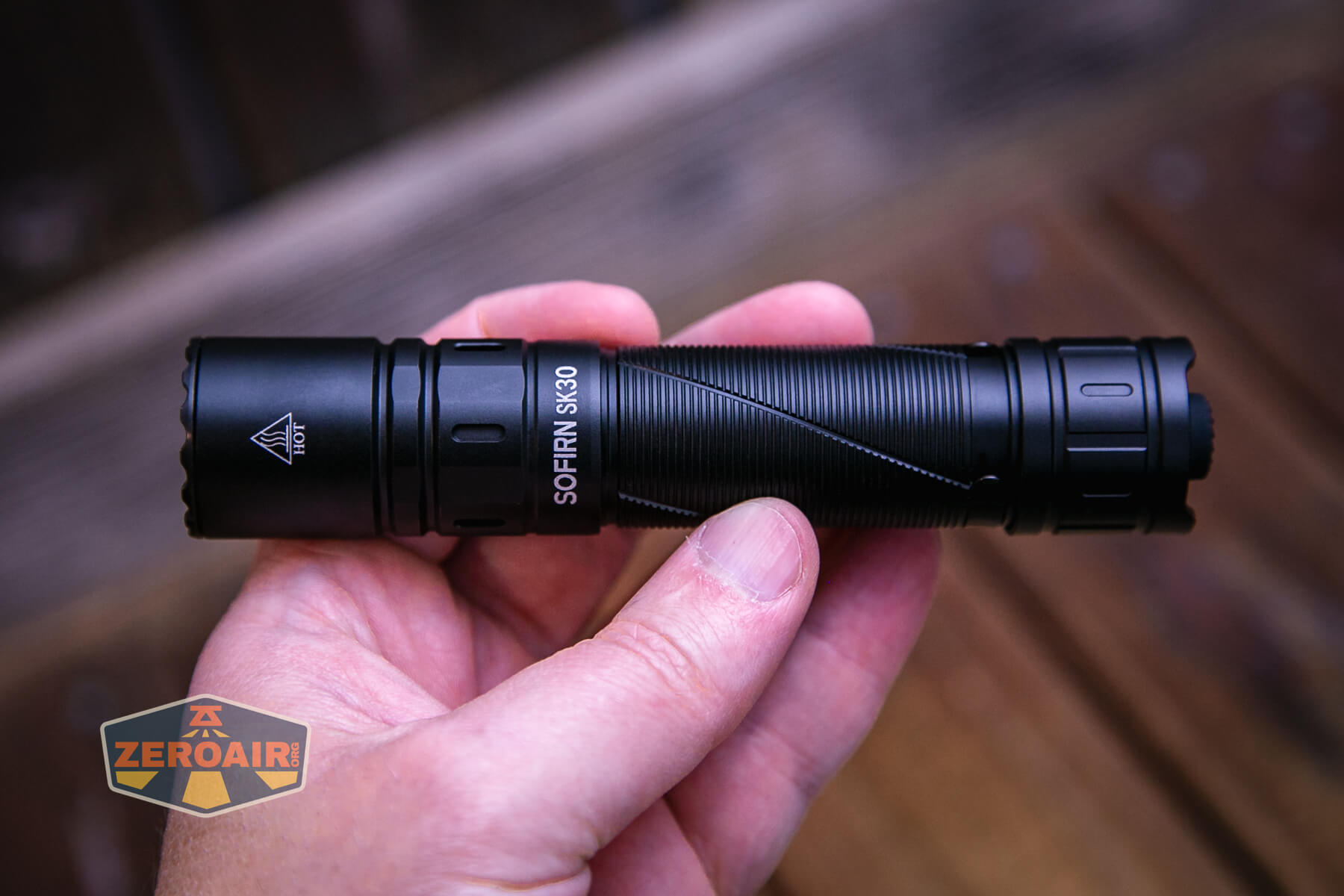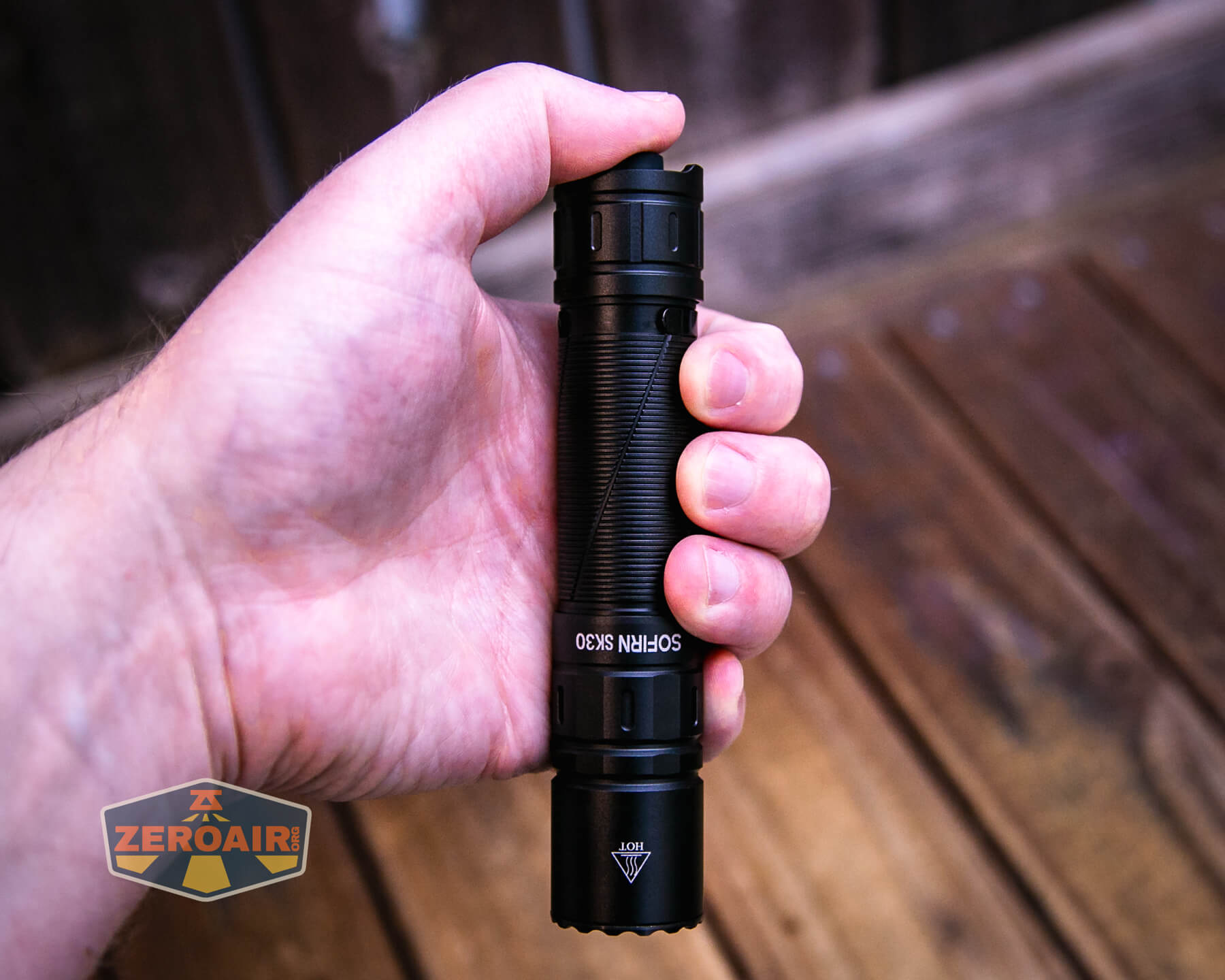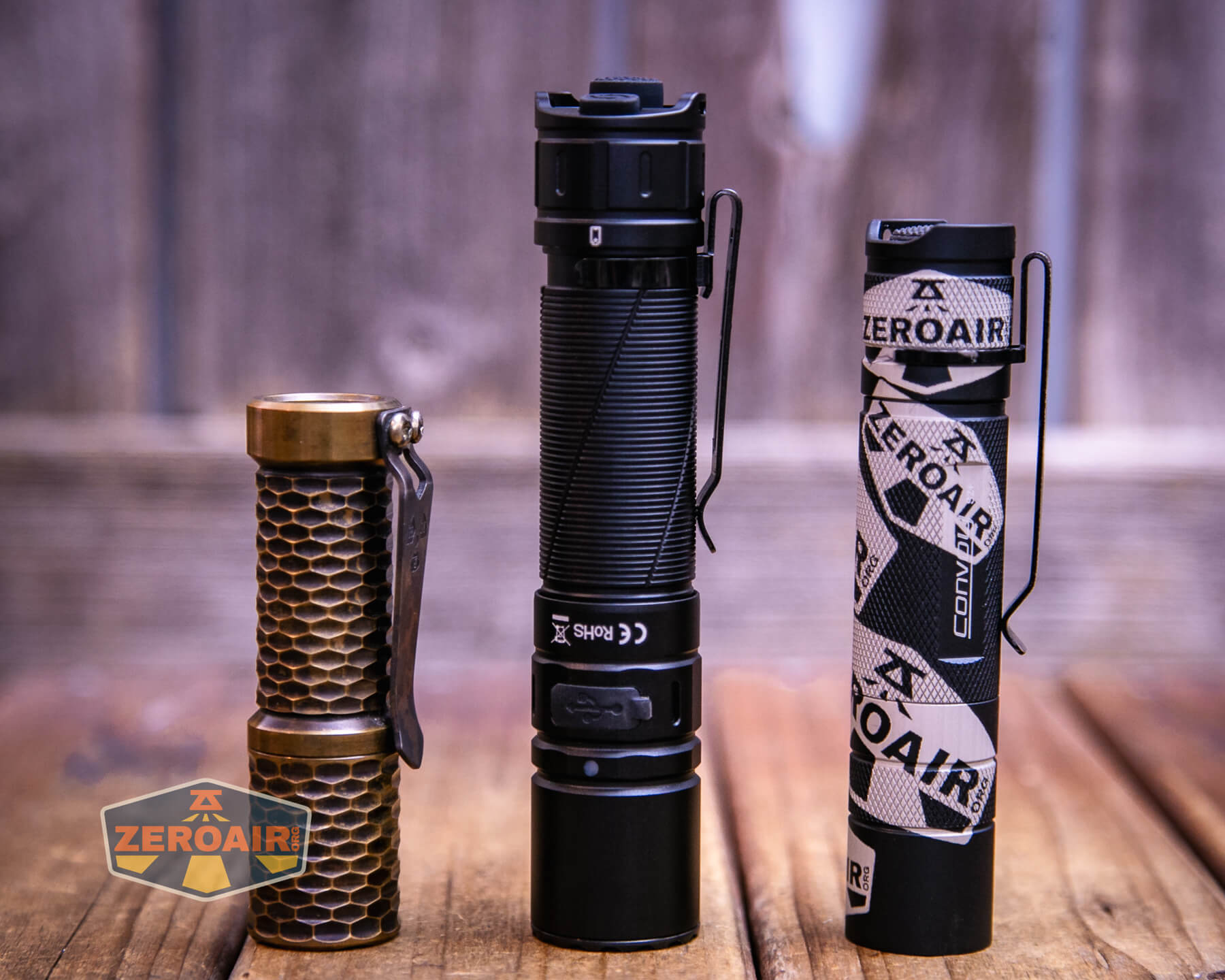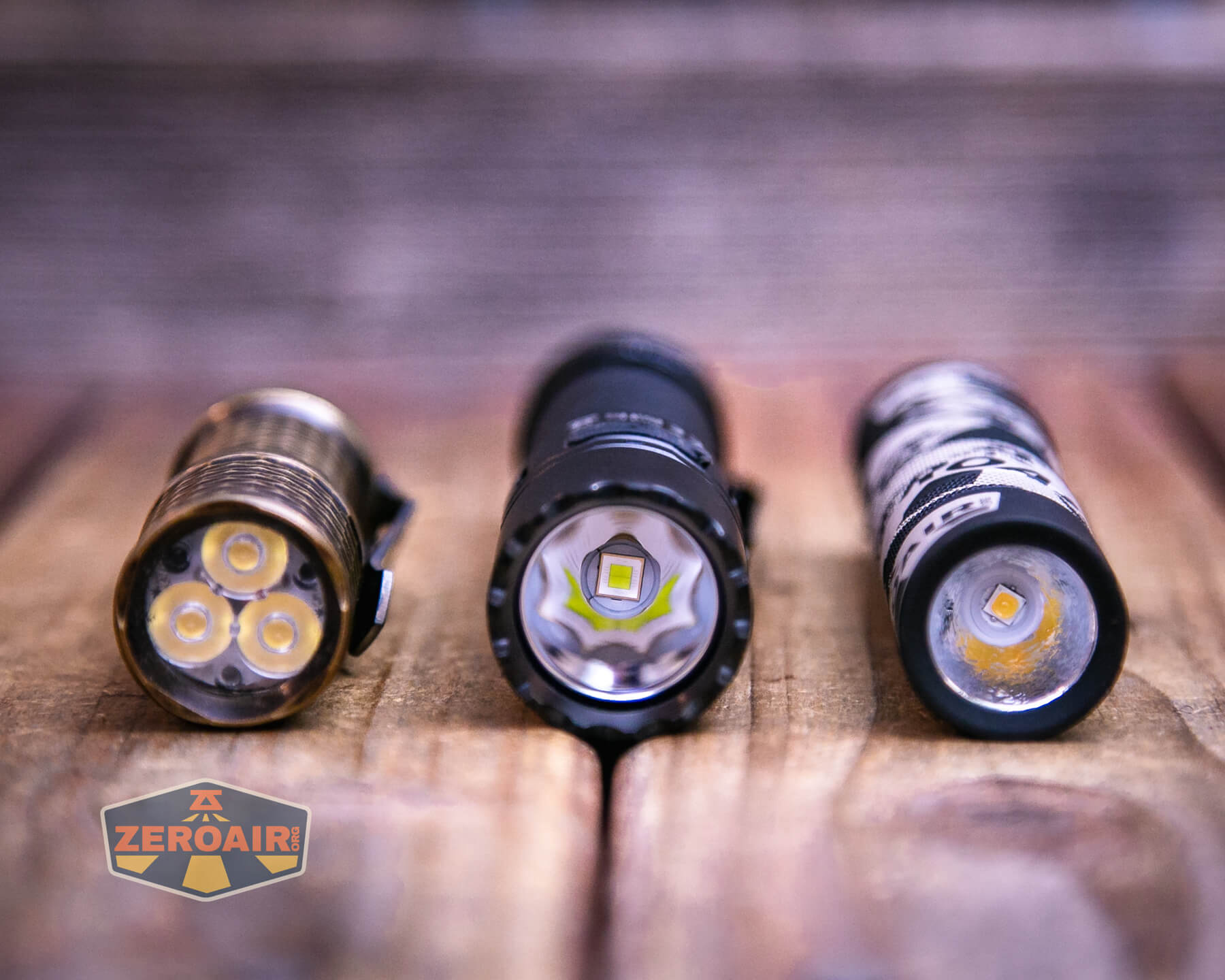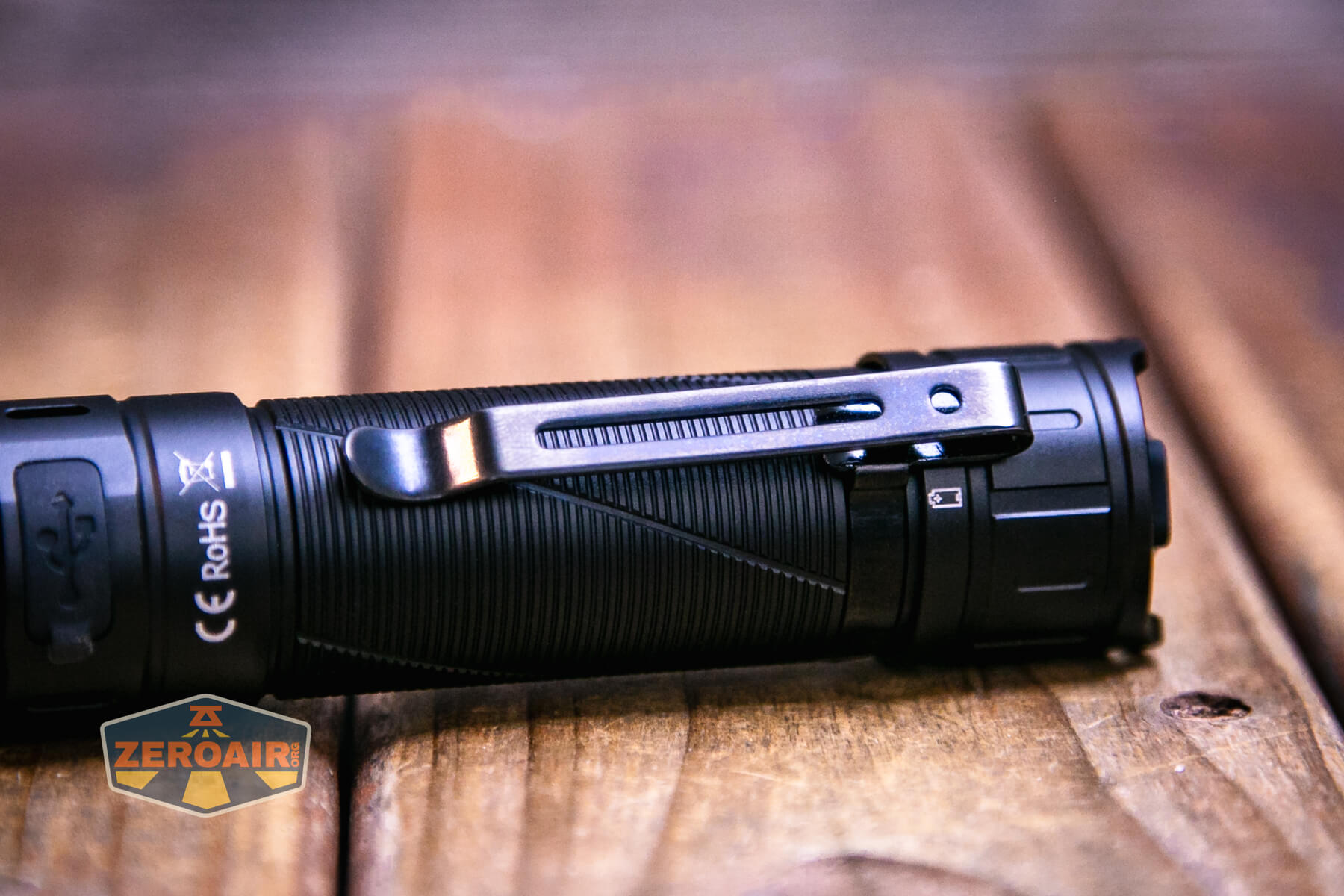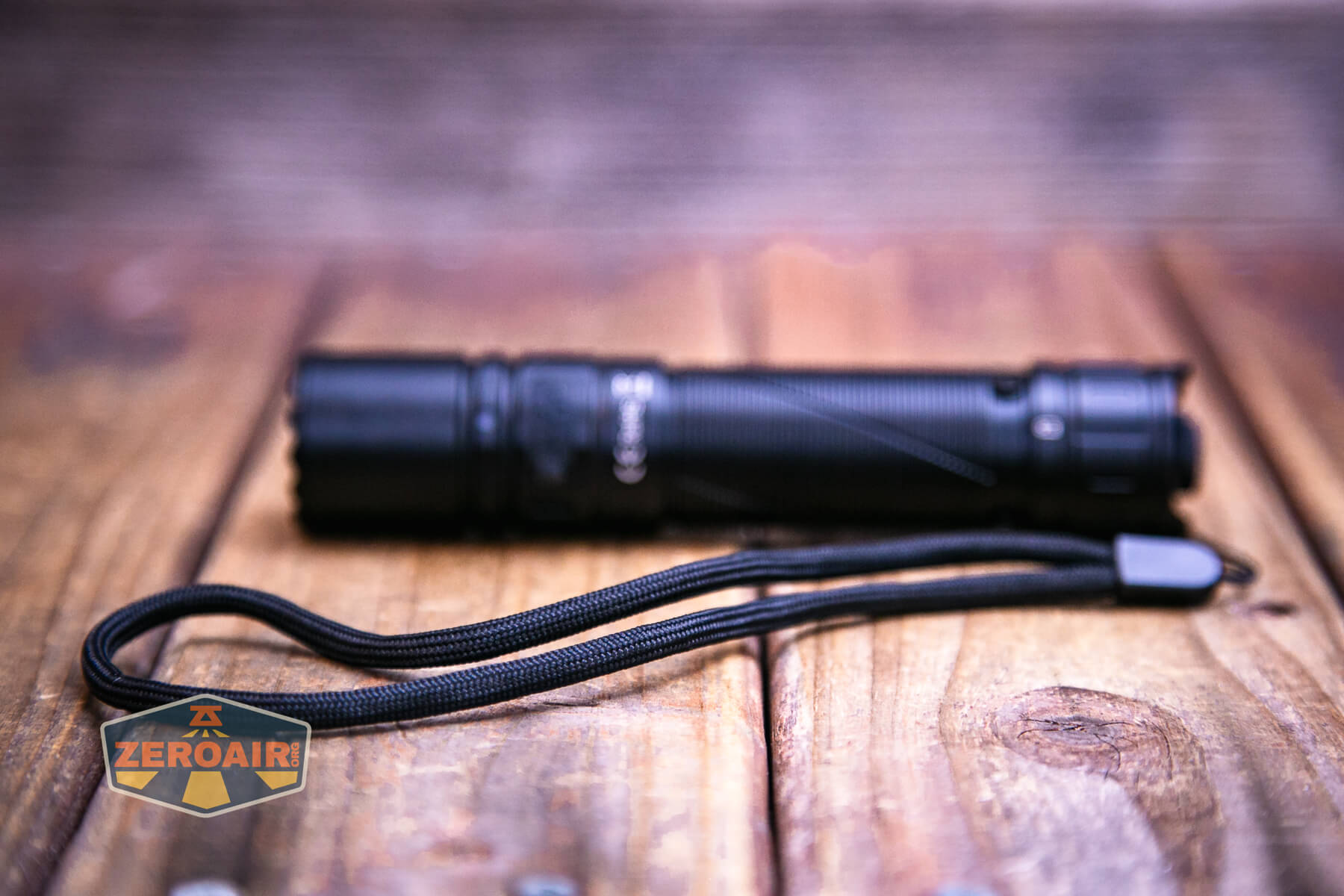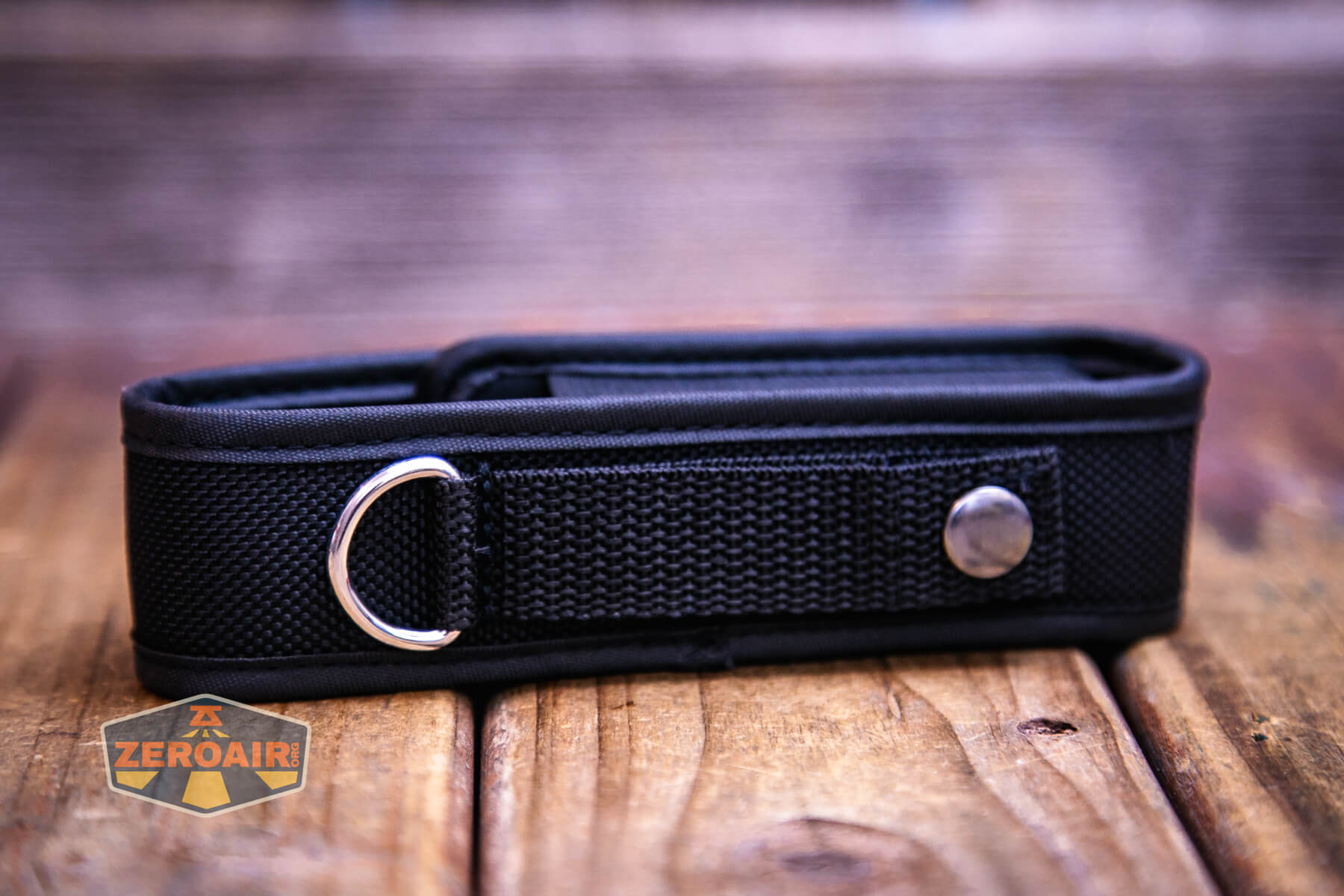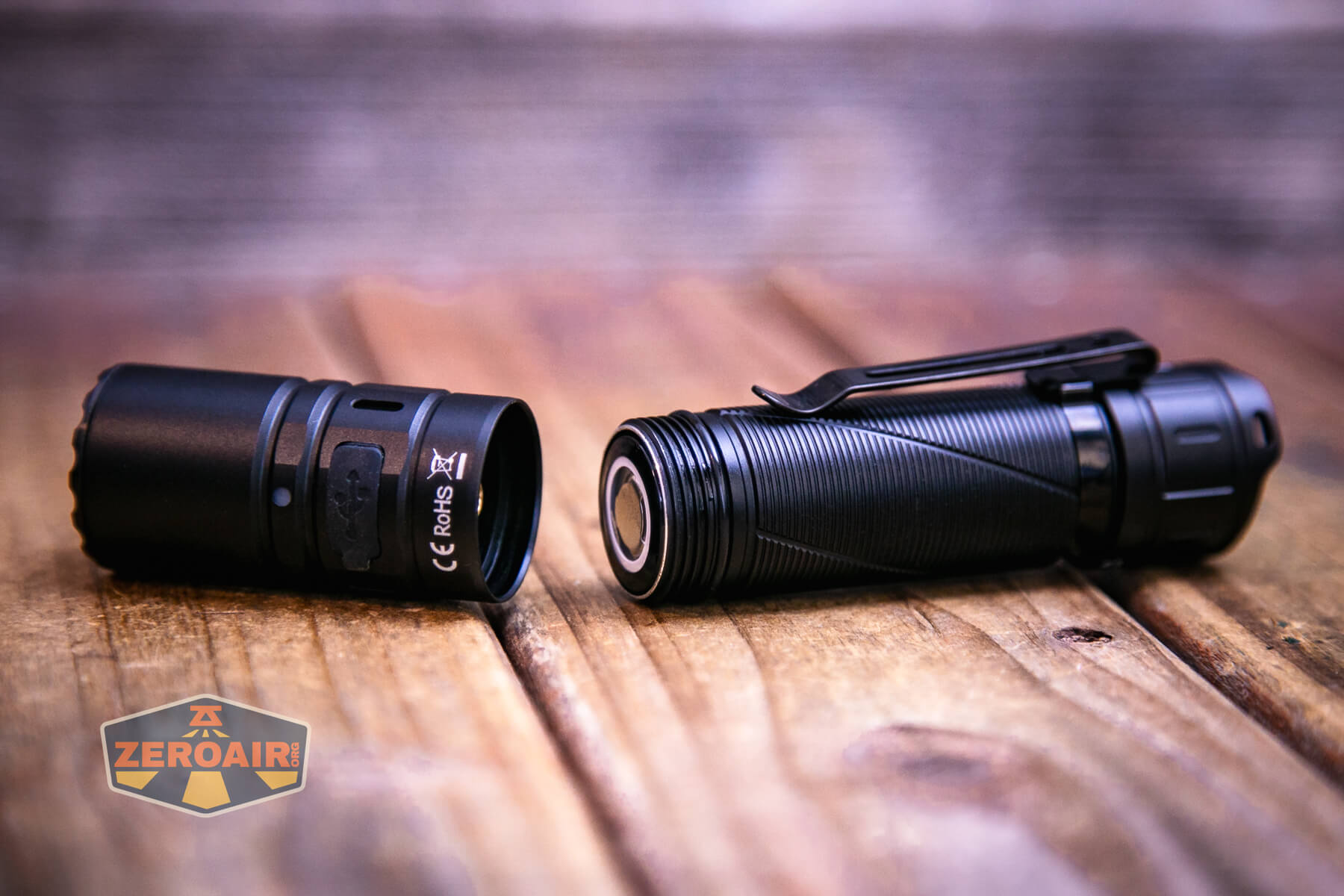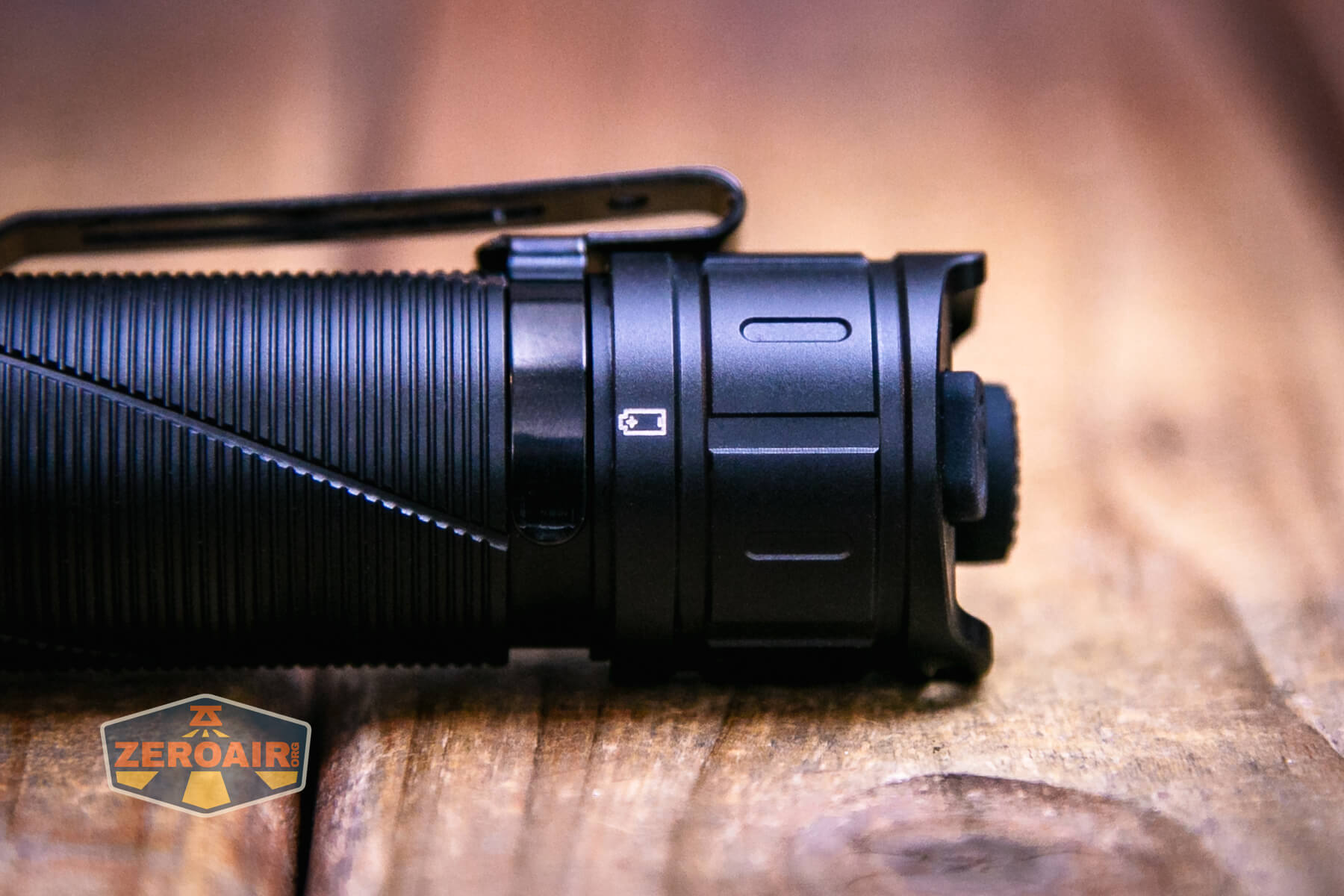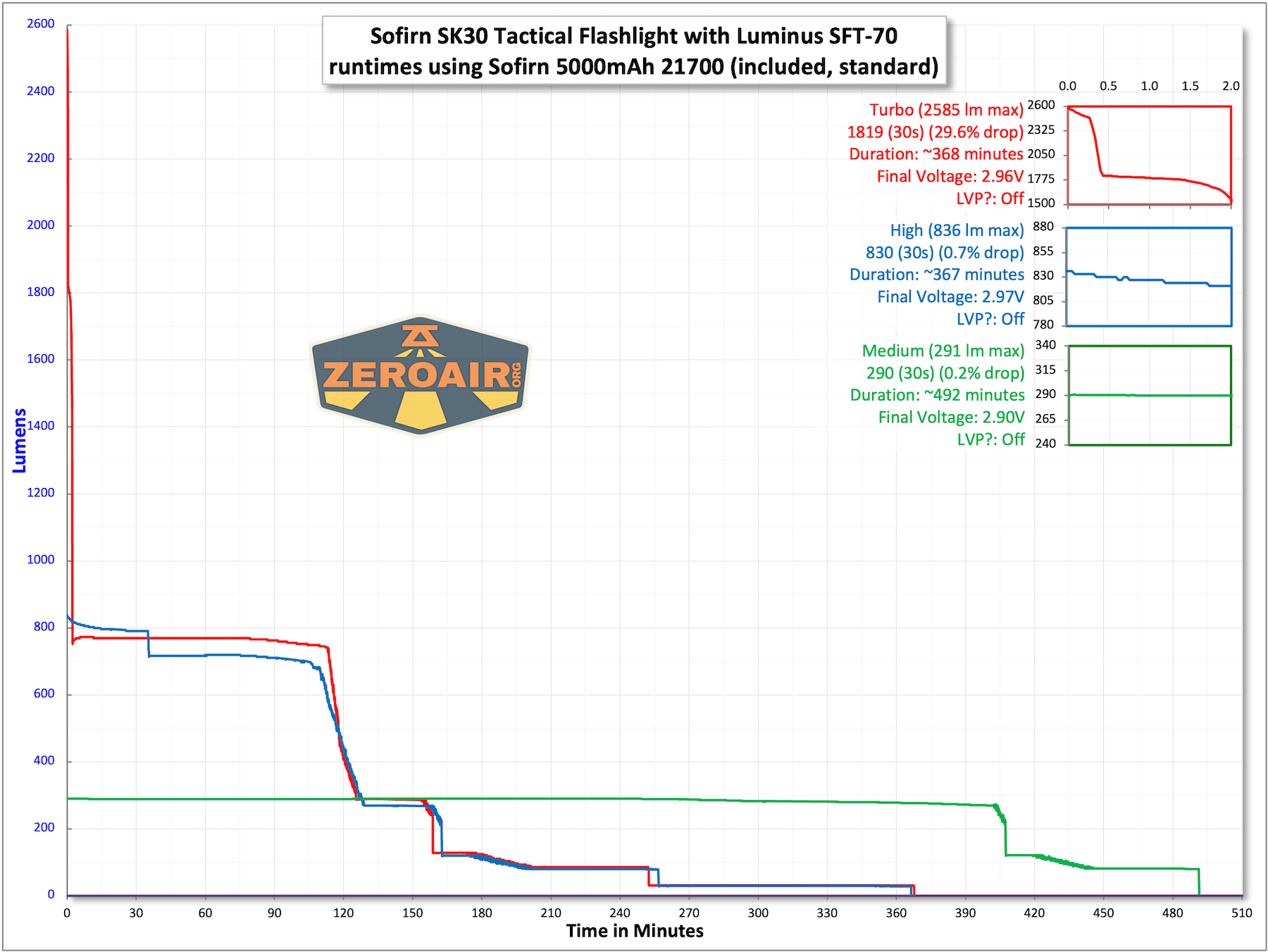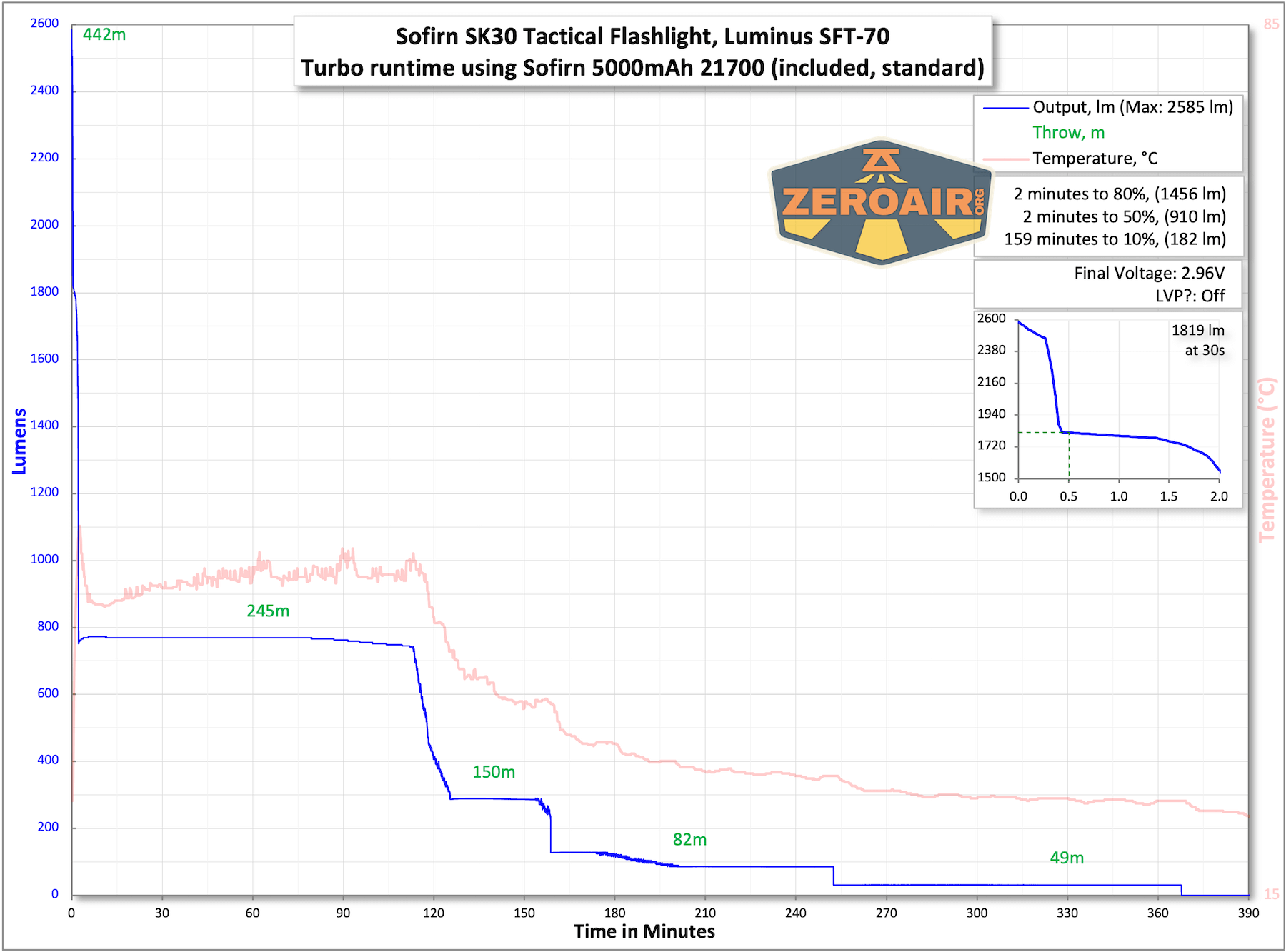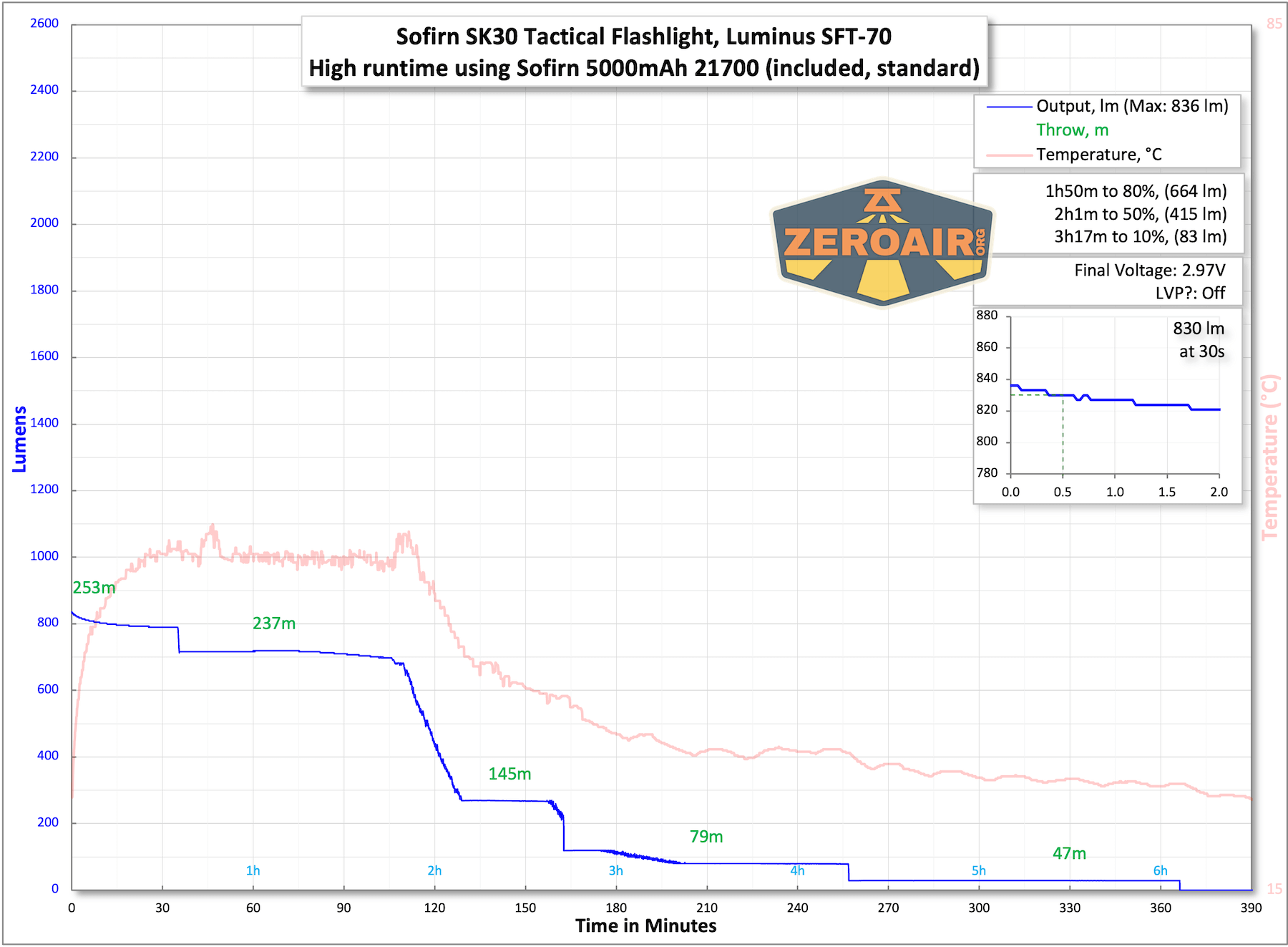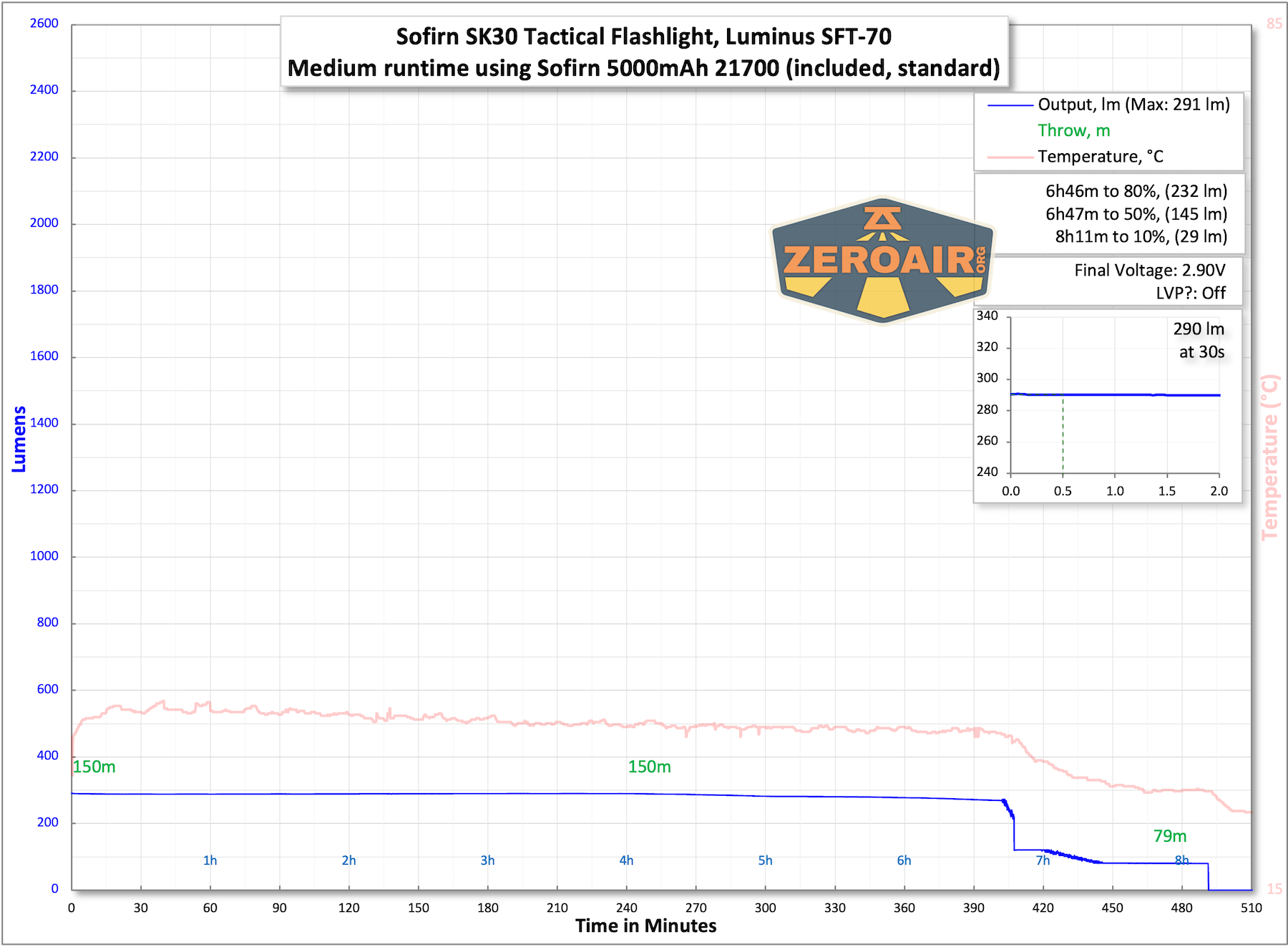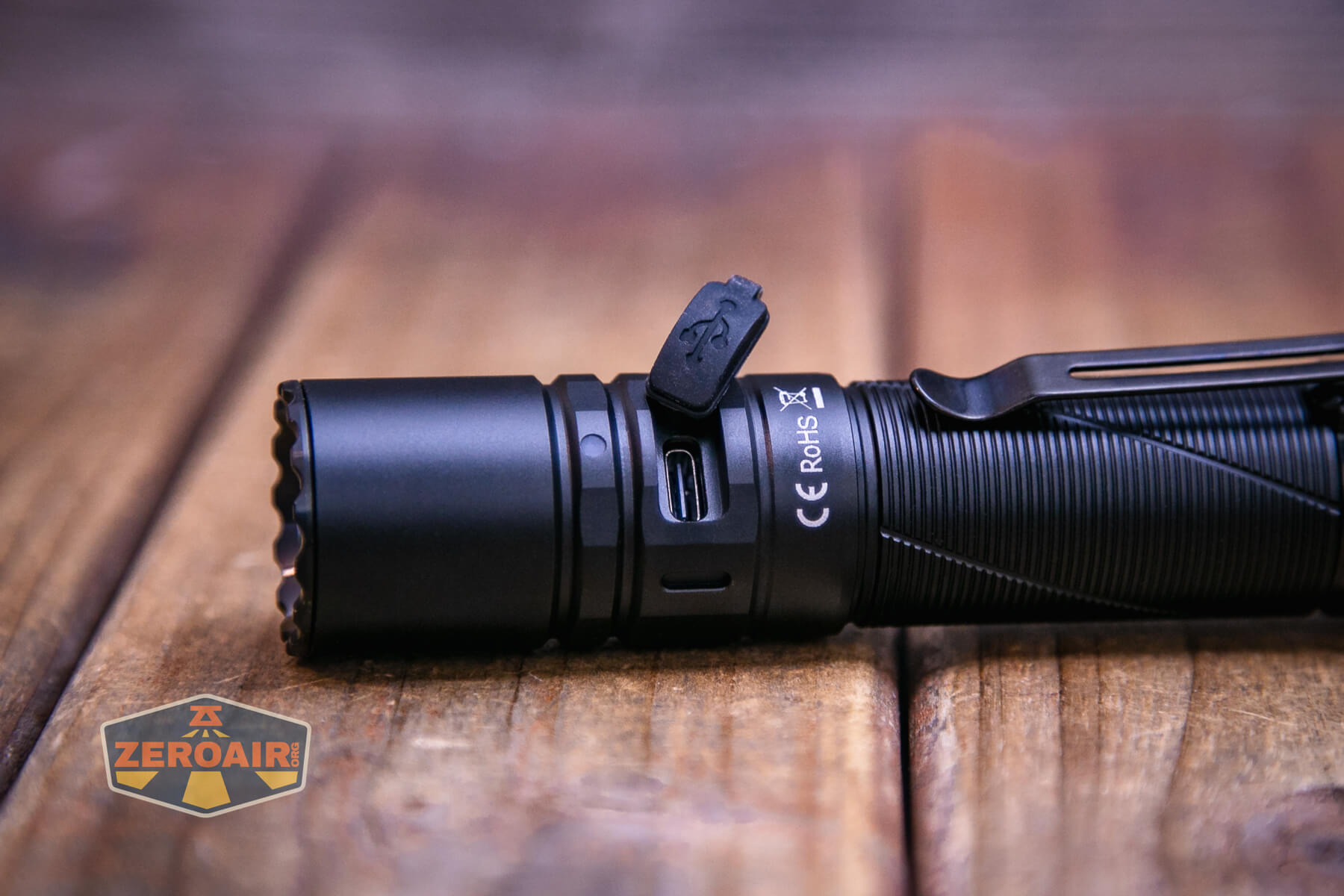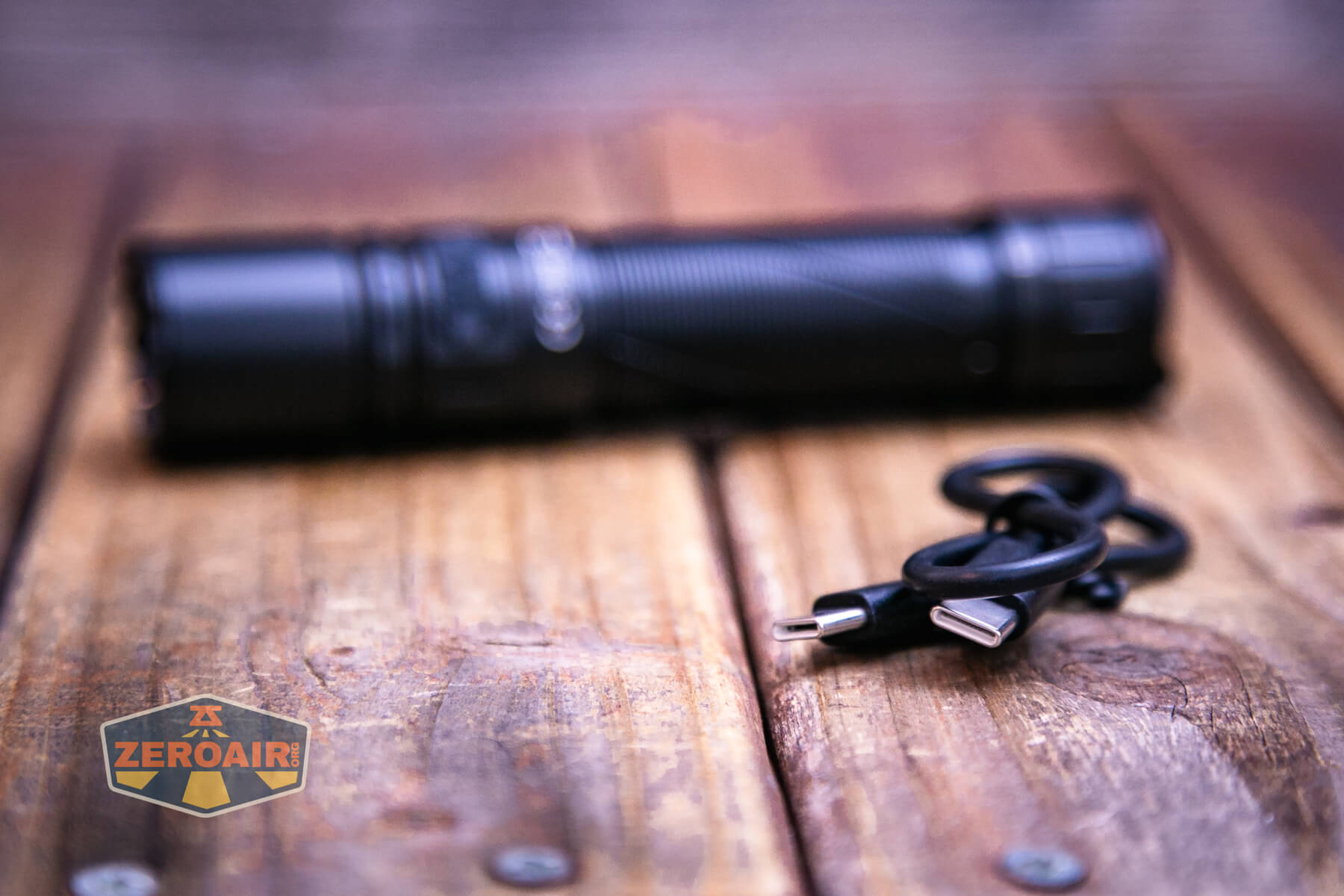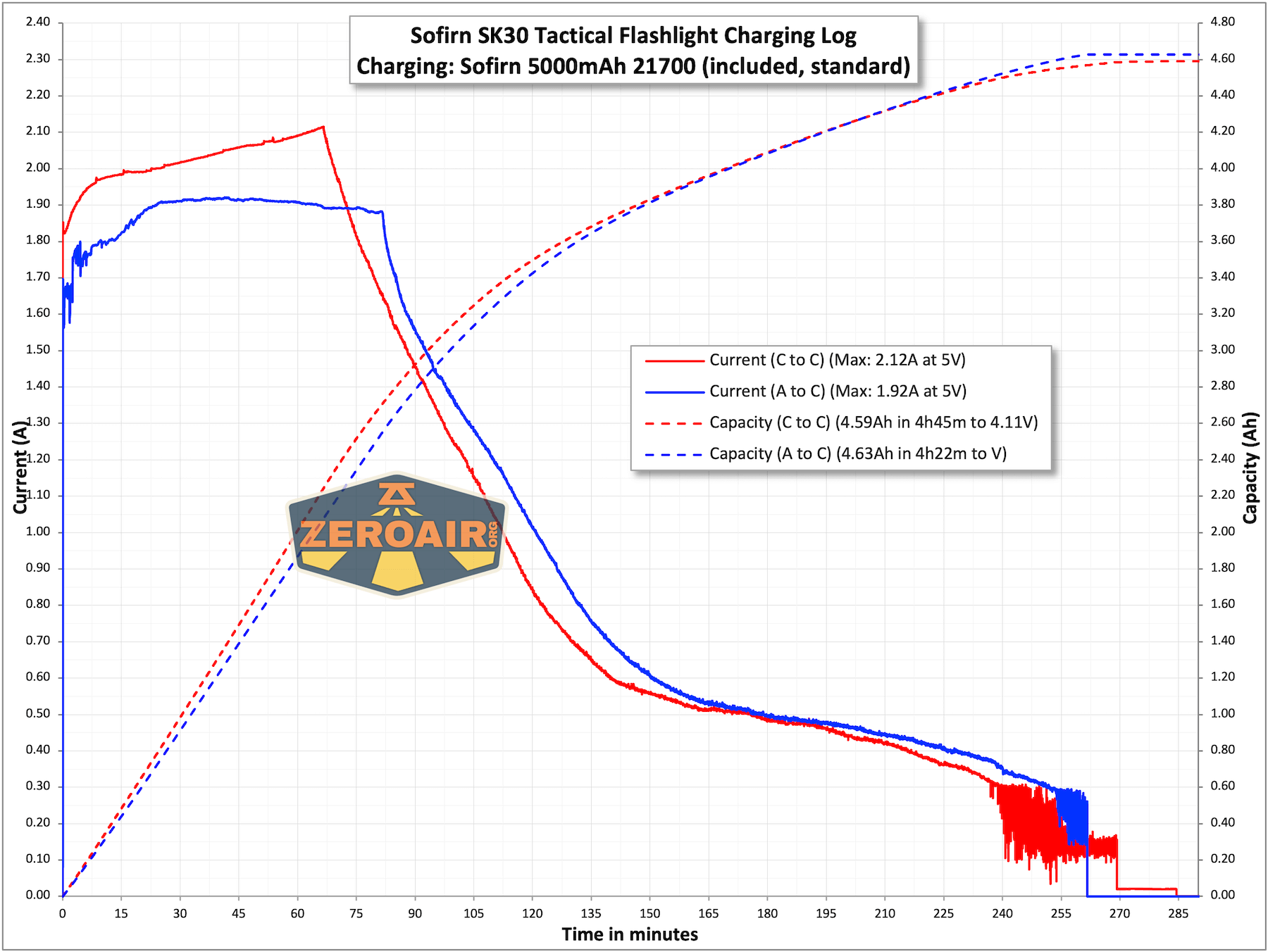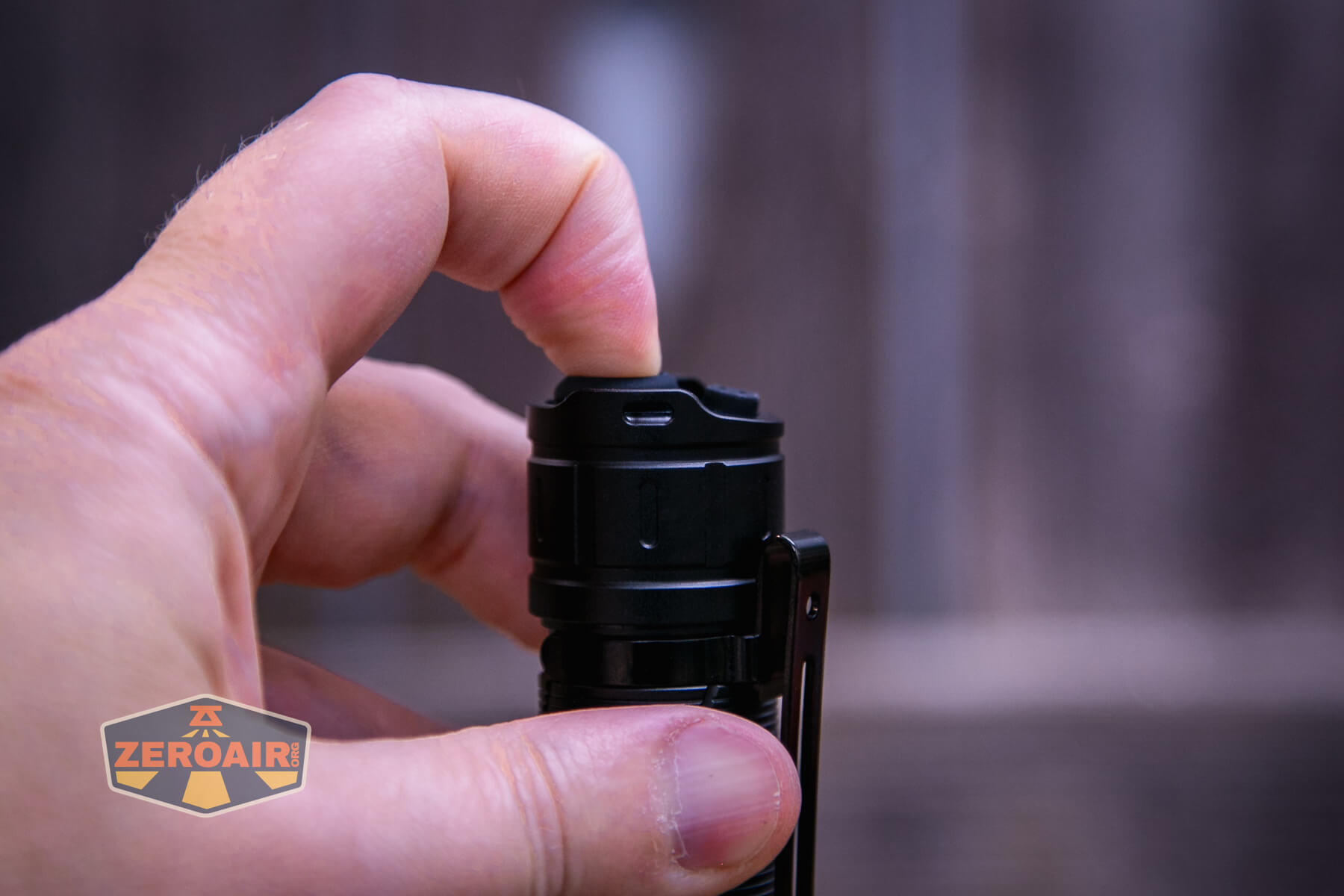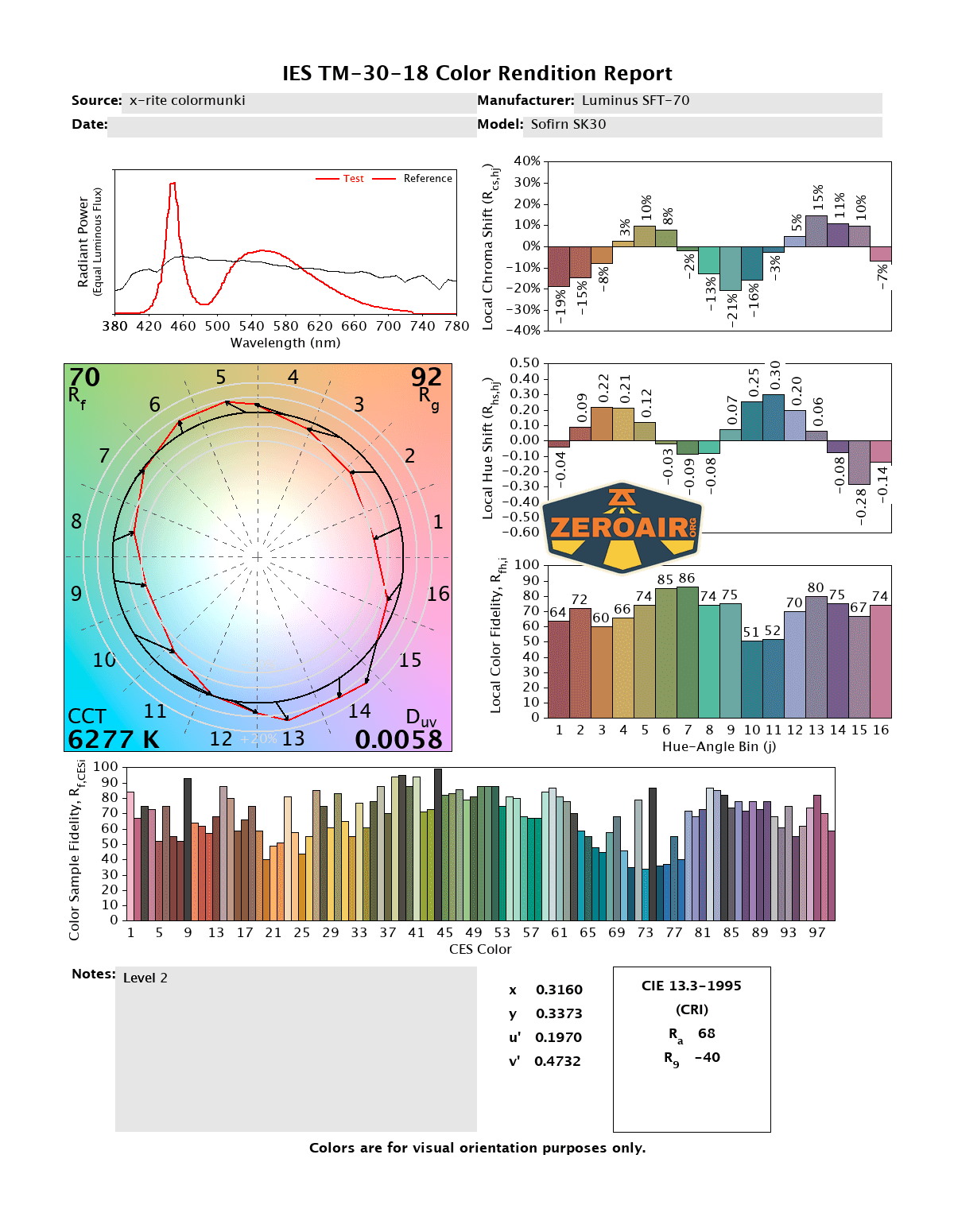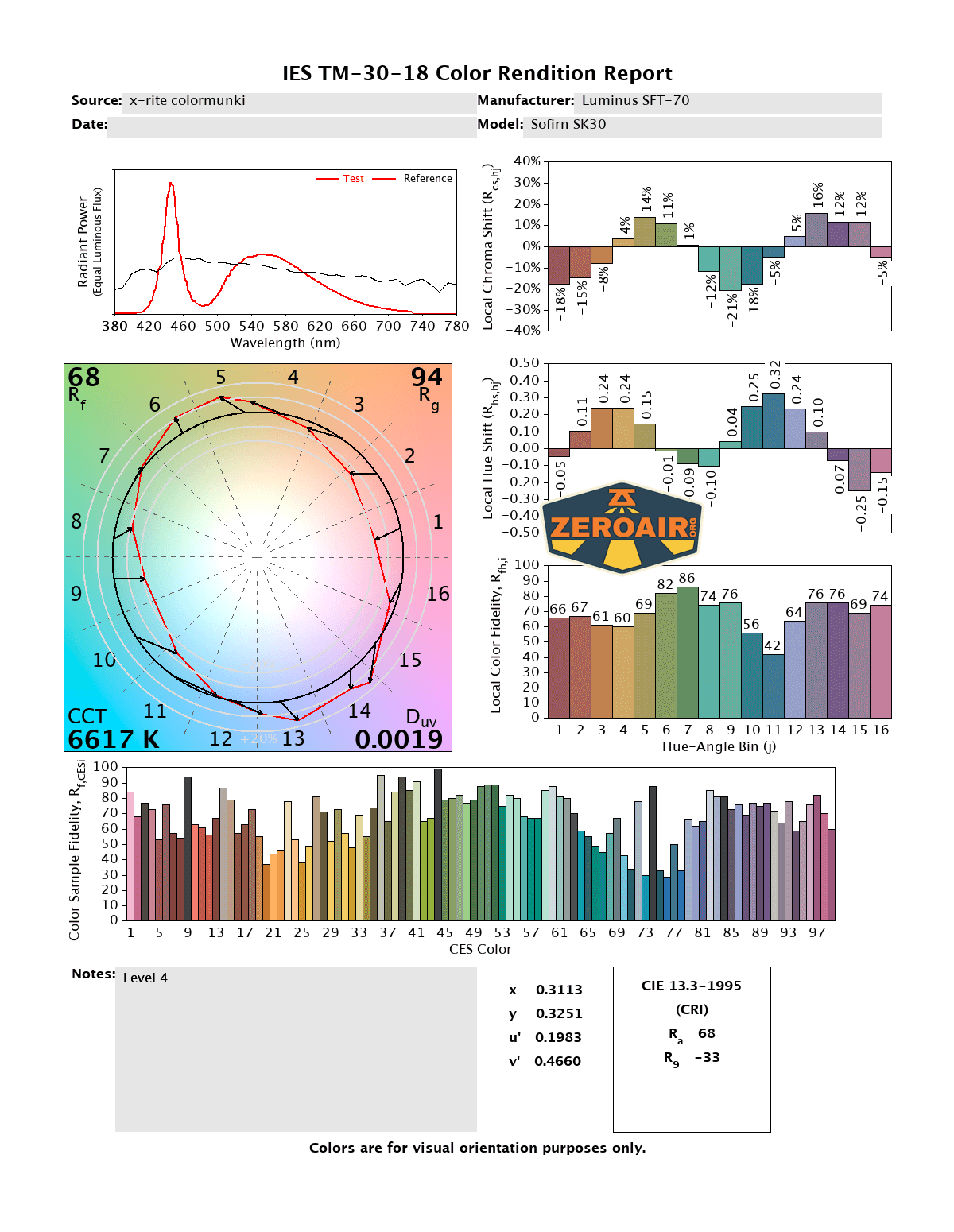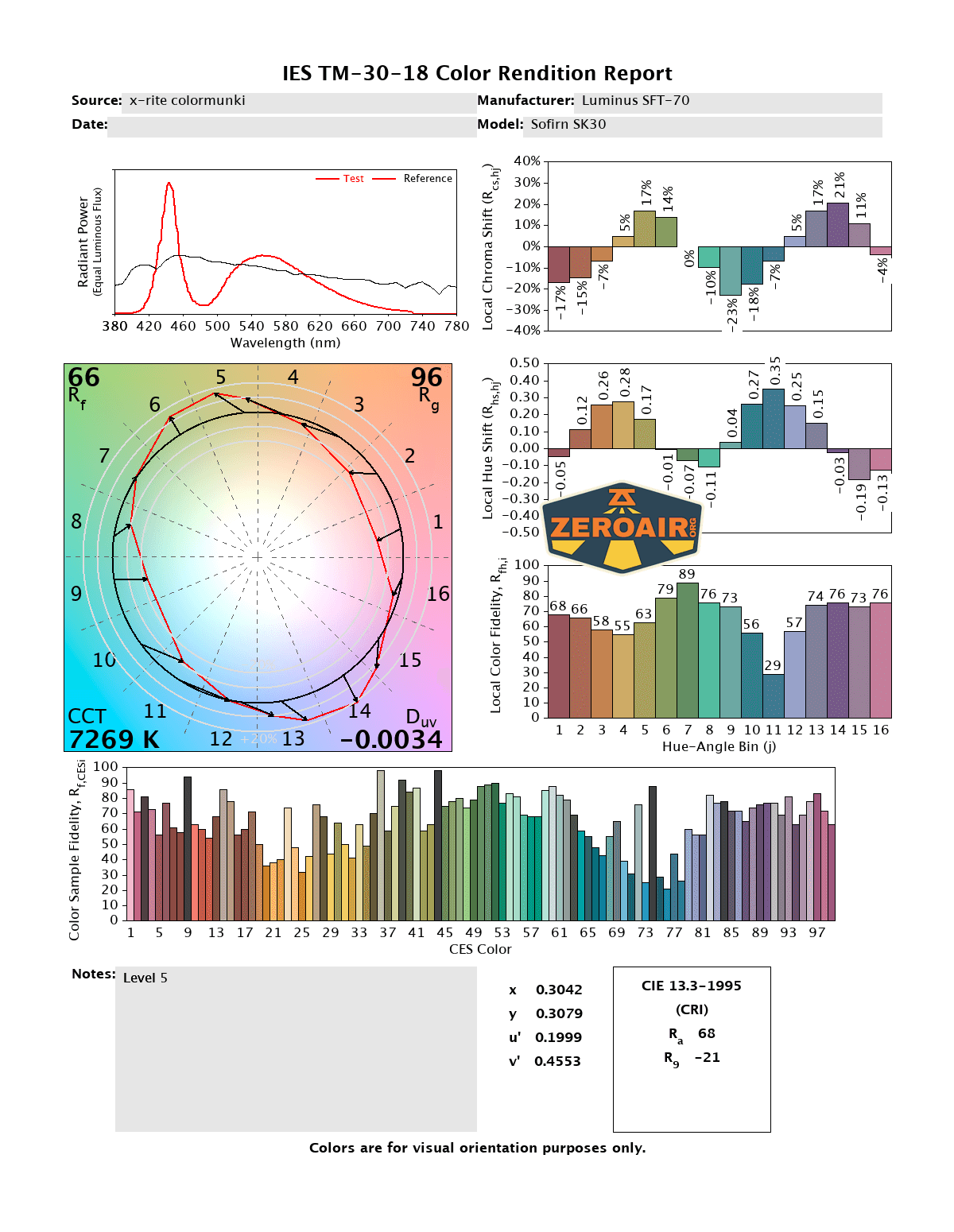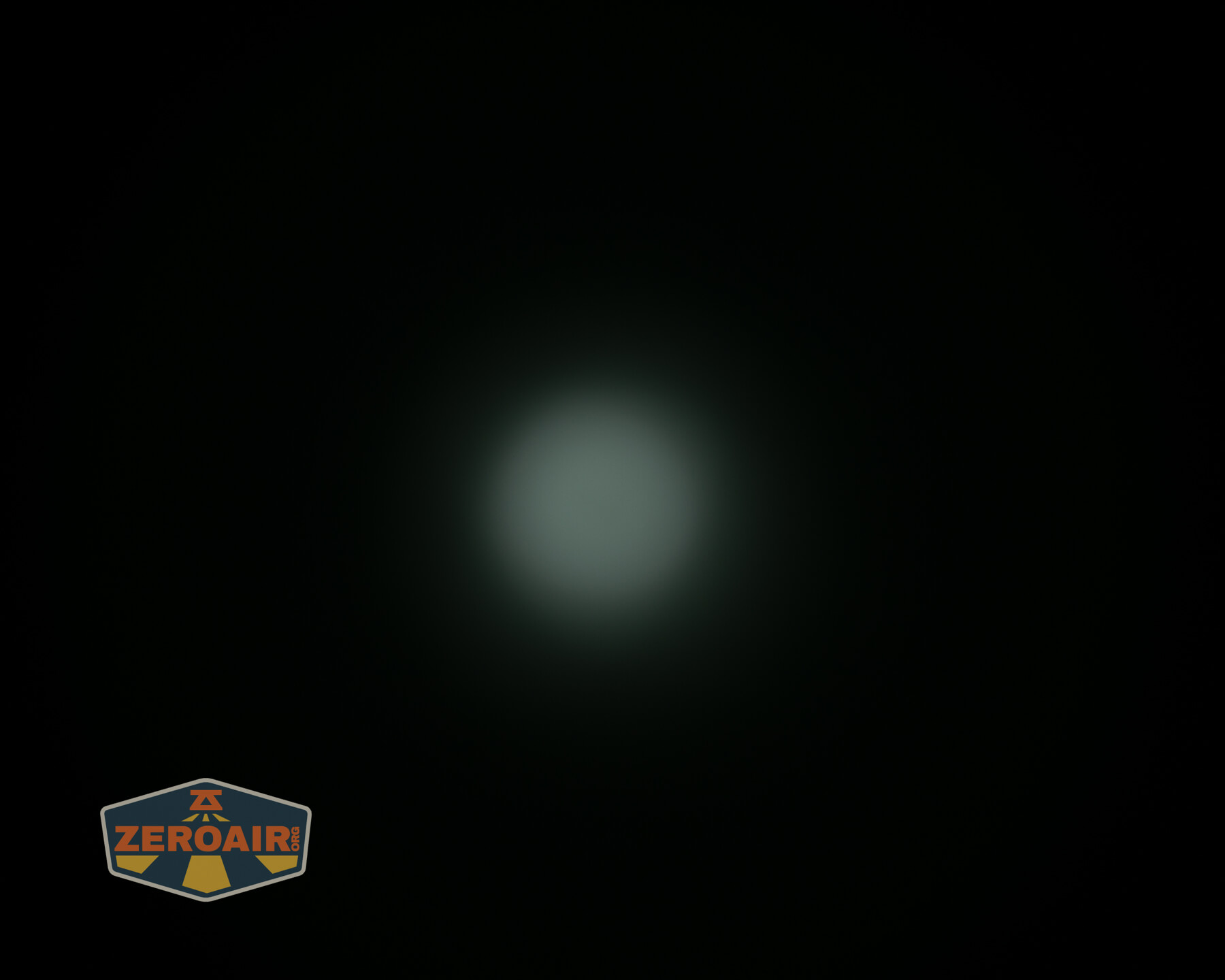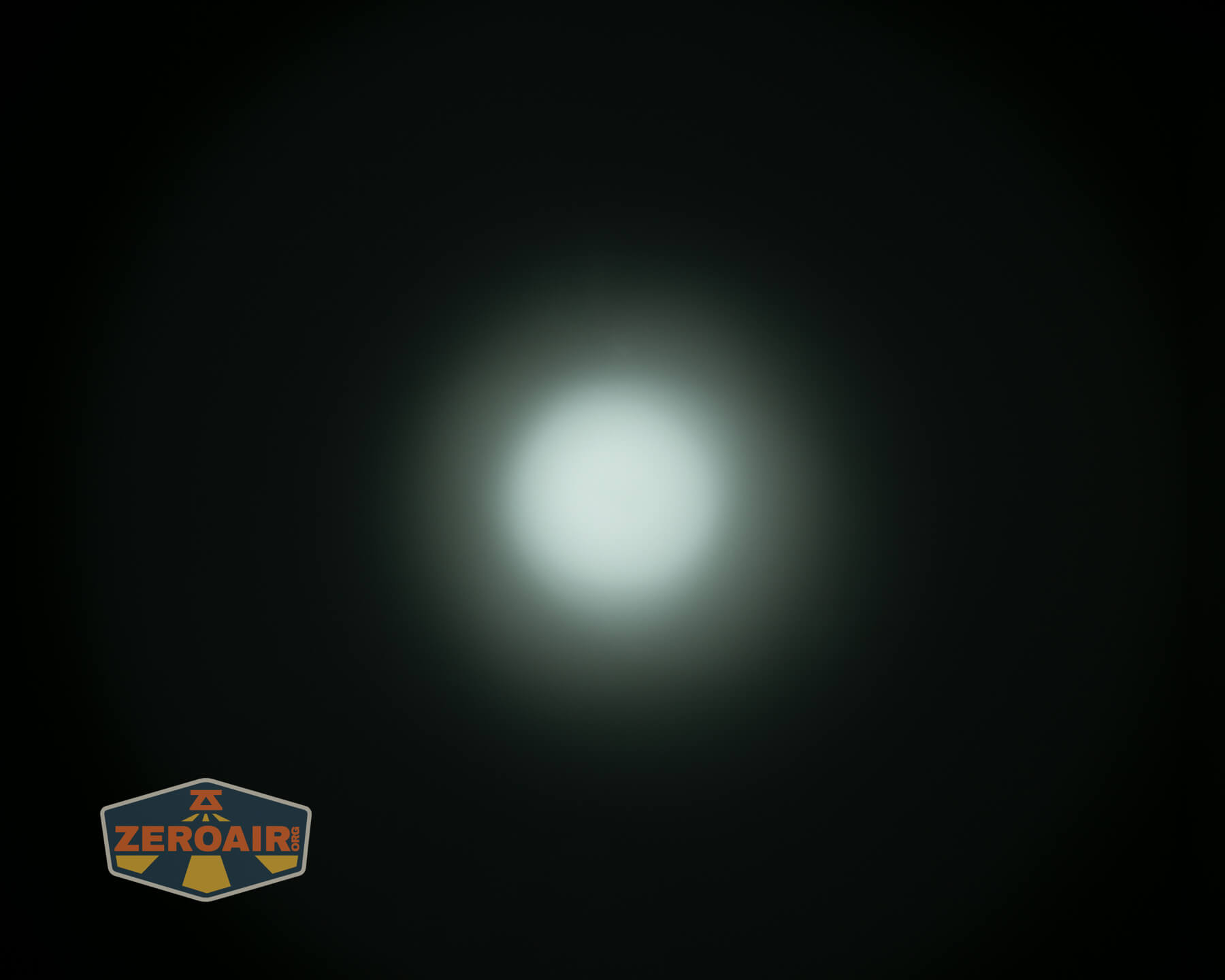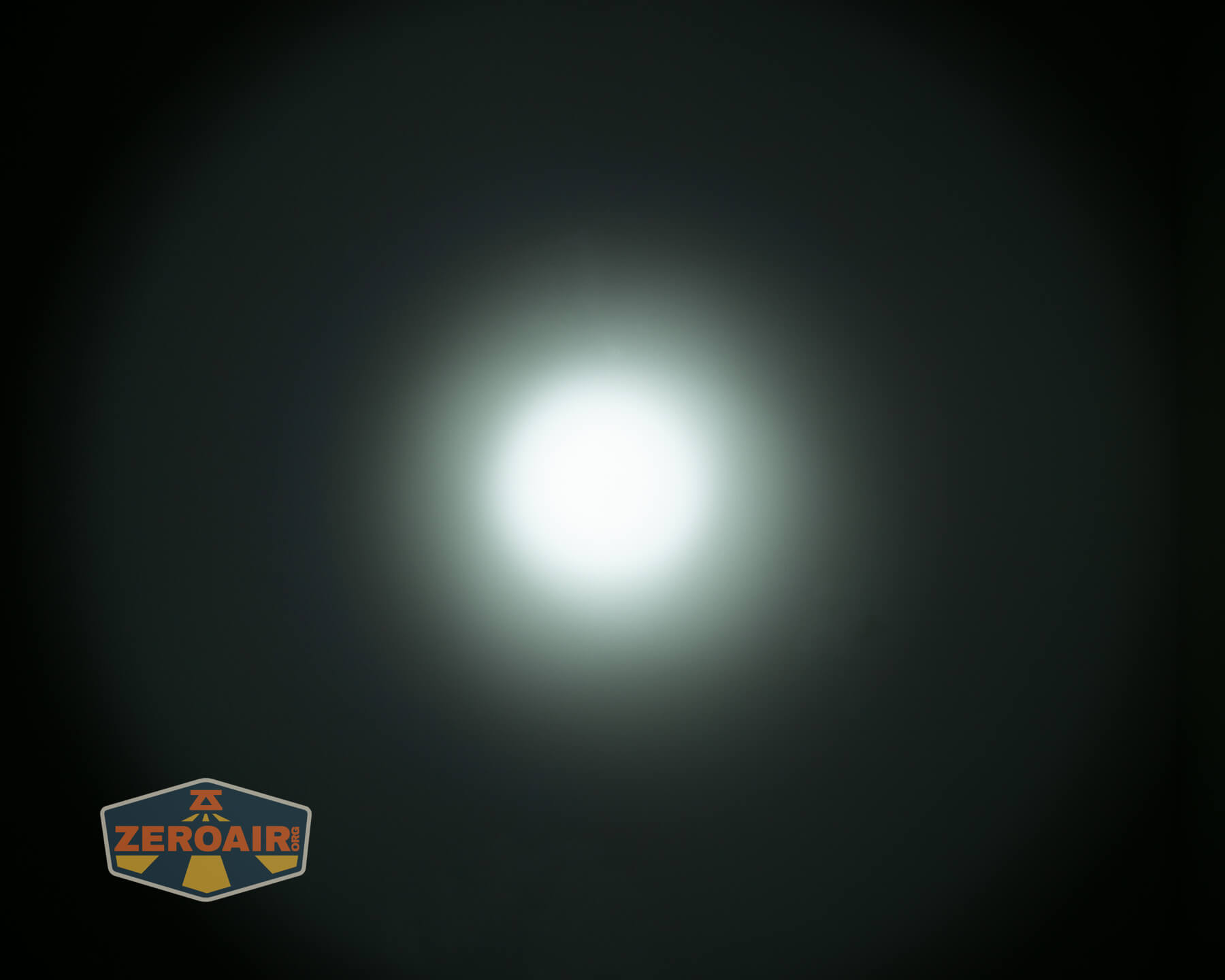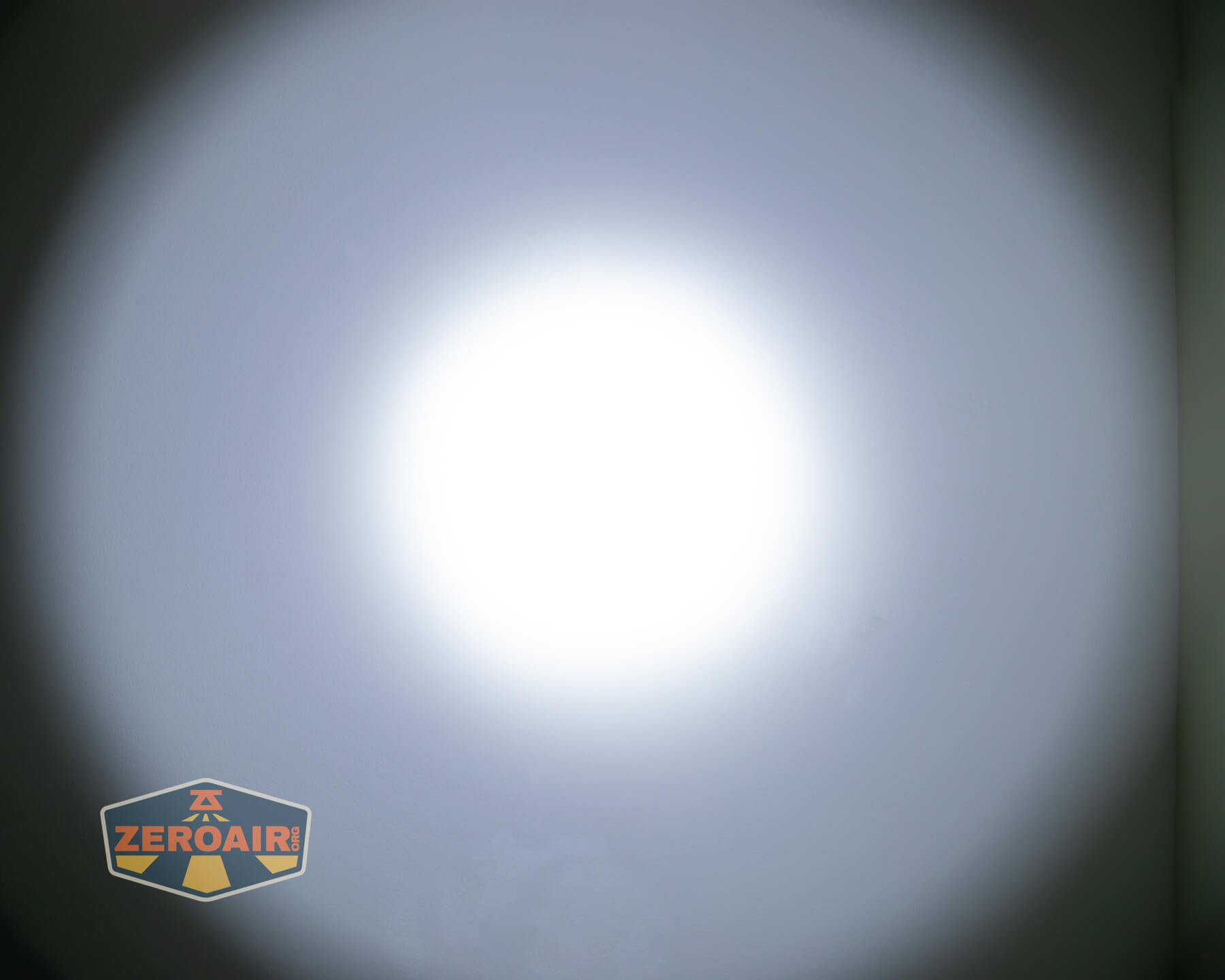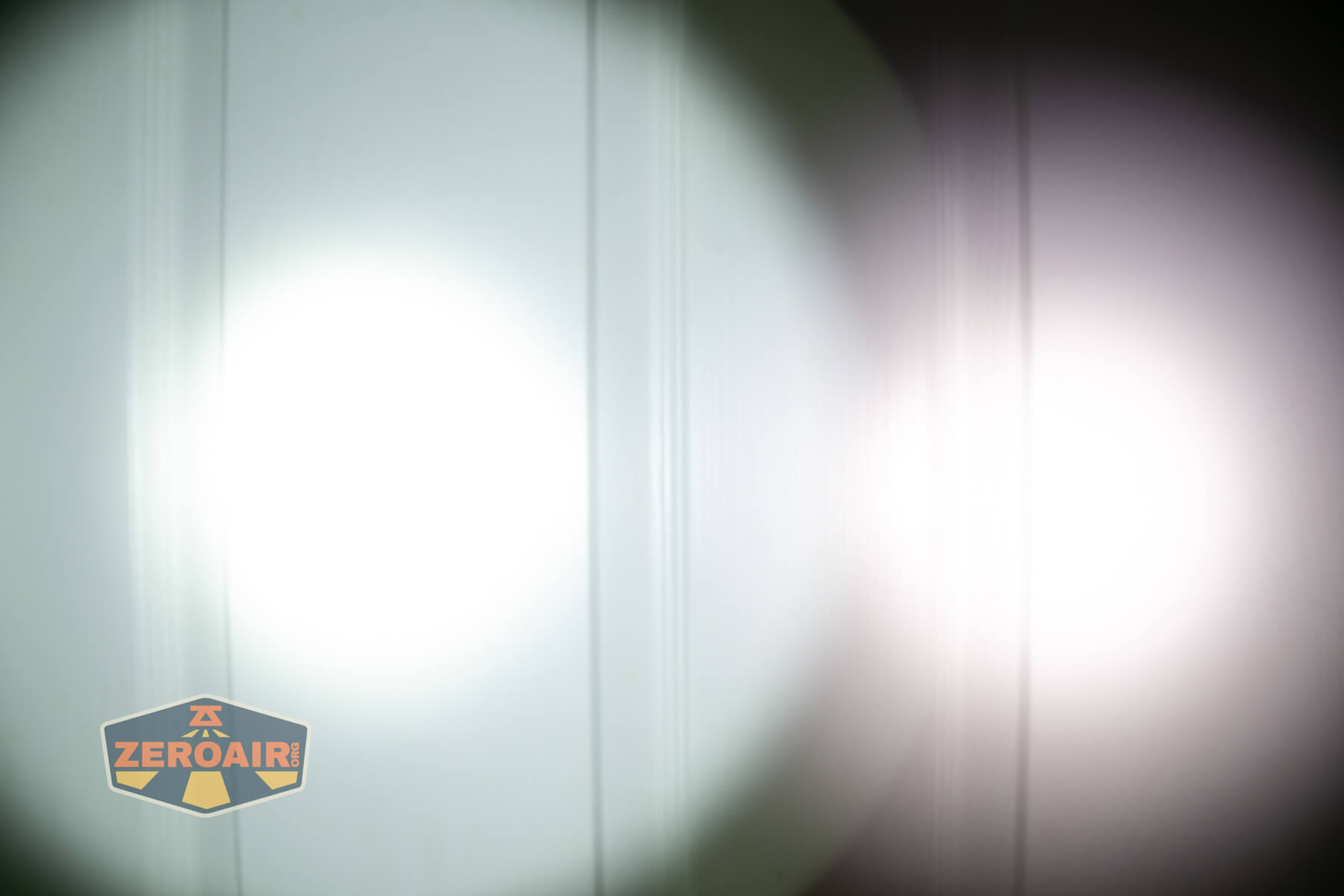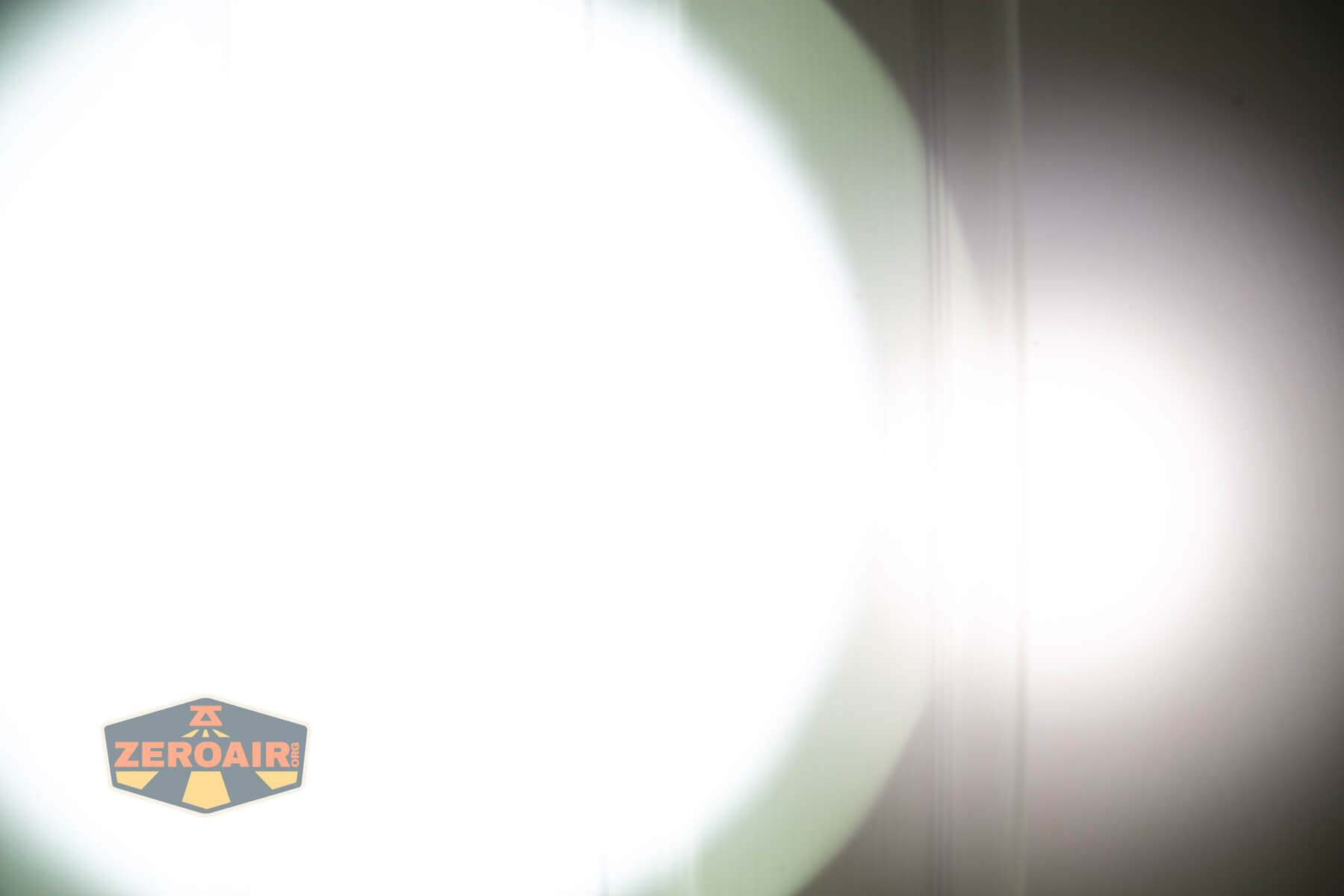Sofirn SK30 Tactical Flashlight Review
The Sofirn SK30 tactical flashlight offers a domeless Luminus SFT-70 emitter for great throw and a dual tail switch interface. USB-C charging is built in, too!
Official Specs and Features
Here’s a link to the Sofirn SK30 tactical flashlight product page.
Versions
There’s just one version of the Sofirn SK30 tactical flashlight.
Price
List price for the Sofirn SK30 tactical flashlight is $65.99, but 24% off is available, bringing the price to $49.99. And it looks like there’s an even better price on Amazon (referral link)!
What’s Included
- Sofirn SK30 tactical flashlight
- 21700 cell
- Charging cable
- Spare o-rings (2)
- Lanyard
- Pouch
- Manual etc
Package and Manual
Build Quality and Disassembly
In general, the build quality is fine, but I have to say right up front that the light worked intermittently for me. When it finally got on and was working right, it was fine. But sometimes the Sofirn SK30 tactical flashlight just wouldn’t come on at all, and sometimes it seemed to cycle through the modes quickly. Tightening the head to the body did not seem to reliably fix the problem, either.
The head has a nice beefy spring.
The tail has a similar spring. The tailcap doesn’t come off through.
Size and Comps
Size: 28mm x 140mm
Weight: 87 g (without battery)
If the flashlight can headstand, I’ll show it here. If it can tailstand, I’ll also show that here!
Here’s the test light with the venerable Convoy S2+. The version below is a custom laser-engraved Convoy S2+ host by GadgetConnections.com. I did a full post on an engraved orange host right here! Or go straight to GadgetConnections.com to buy your Convoy S2+ now!
Also in the photo above, my Standard Reference Material (SRM) flashlight is the Hanko Machine Works Trident, an 18350 light. While I have not reviewed or tested the Gunner Grip version seen here, I have tested a Hanko Machine Works Trident Total Tesseract in brass. I love the Trident, and it’s a striking contrast to the inexpensive Convoy S2+, another great SRM.
Retention and Carry
A friction-fit pocket clip is included.
The pocket clip has a couple of holes where you could attach the included lanyard, but a better place is on the tailcap, where there are two options. (You can see that later.)
There’s also a pouch.
Power and Runtime
The Sofirn SK30 tactical flashlight runs a single lithium-ion cell. It’s a 21700-sized light, and Sofirn includes a 5000mAh 21700.
The 21700 goes into the light in the usual direction: positive end toward the head.
If you forget that, you can regard this little cell icon on the tailcap.
Below are runtime tests for the highest three modes.
Low voltage protection is observed, with the shutoff being around 2.9V.
The temperature lines in these charts are included as general context, not precise measurements. The values represent the range (min to max) during testing, but should not be taken as exact readings. Temperature sensors are attached however feasible and not always on the bezel or hottest spot (assuming that can even be clearly defined). Even with ideal placement, too many variables affect temperature to definitively state a specific max value.
Charging
The Sofirn SK30 tactical flashlight offers USB-C charging on the head. There’s a press-in charge port cover.
Sofirn includes a USB-C to USB-C charging cable.
Charging is fine, peaking at around 2A, but then drifting off for quite a while before finally terminating. So the total time is nearly 5 hours, but the CC (constant current) phase only lasts around 1.5 hours.
Modes and Currents
| Mode | Mode Claimed Output (lm) | Claimed Runtime | Measured Lumens |
|---|---|---|---|
| Turbo | 3000-780-280 | 70s+120m+60m | 2852 (0s) 1819 (30s) |
| High | 1000-780-280 | 11m+120m+90m | 836 (0s) 830 (30s) |
| Medium | 350 | 9h | 291 |
| Low | 150 | 20h | 124 |
| Eco | 30 | 42h | 22 |
Pulse Width Modulation
None of the modes seem to use PWM.
Click here to see a “baseline” – a chart with almost no light hitting the sensor.
Then there’s the Ultrafire WF-602C flashlight, which has some of the worst PWM I’ve seen. It’s so bad that I used a post about it to explain PWM! Here are multiple timescales (10ms, 5ms, 2ms, 1ms, 0.5ms, 0.2ms) to make comparing this “worst” PWM light to the test light easier. That post also explains why I didn’t test the WF-602C at the usual 50us scale.
User Interface and Operation
The Sofirn SK30 tactical flashlight has an unusual dual tailswitch configuration. One switch is mechanical, and the other is an e-switch. “Unusual” isn’t exactly right – this setup is common on tactical lights. The e-switch is usually in a paddle form, or some such.
The high-profile switches do prevent tailstanding.
Here’s a user interface table! The mechanical switch is the bigger, taller switch, and the e-switch is the smaller, angled switch.
| State | Action | Result |
|---|---|---|
| Off | Click the mechanical switch | On (memory) (and battery indicator activation^) |
| On | Click the mechanical switch | Off |
| On | Click the e-switch switch | Mode advance (ascending, all 5 steady modes) |
| Off | Hold the e-switch switch | Battery indicator activation |
| Off | Half-press then click the mechanical switch | Turbo |
| On | Long press e-switch | Strobe |
^ Battery indicator works as follows:
Green steady: 75-100% power
Green flashing: 50-75% power
Red steady: 25-50% power
Red flashing: 1-25% power
LED and Beam
The Sofirn SK30 tactical flashlight uses a Luminus SFT-70 emitter and has a small, smooth reflector.
This combination provides a nice, tight beam, but it does still have a good bit of spill.
LED Color Report (CRI and CCT)
The output here is cool to very cool and low CRI. Not a surprise on any tactical light.
CCT (Correlated Color Temperature) refers to the measurement of the color appearance of light, expressed in Kelvins (K), which indicates whether the light is warm (yellowish) or cool (bluish). A lower CCT (below 3000K) is considered warm light, while a higher CCT (above 5000K) gives cooler, bluish light.
CRI (Color Rendering Index) is a measure of how accurately a light source renders colors in comparison to natural sunlight. Scored on a scale from 0 to 100, higher CRI values indicate that colors appear more true to life and vibrant, similar to how they would look under the sun.
Beamshots
These beamshots always have the following settings: f8, ISO100, 0.3s shutter, and manual 5000K exposure. These photos are taken at floor level, and the beam hits the ceiling around 9 feet away.
Tint vs BLF-348 (KillzoneFlashlights.com 219b version) (affiliate link)
I keep the test flashlight on the left and the BLF-348 reference flashlight on the right. These photos are taken around 18 inches from the door.
I compare everything to the KillzoneFlashlights.com 219b BLF-348 because it’s inexpensive and has the best tint!
Summary and Conclusion
The Sofirn SK30 tactical flashlight seems like a fine light, but my copy really needs to work better. Activation is intermittent, but once it is on, it does tend to stay on (as shown in the runtime tests). Performance is fairly good, even though it doesn’t seem to hit the 3000-lumen claim. I like the user interface, as it doesn’t require a double click to get to Turbo, and when in turbo, clicking “out” of Turbo is unlike other recent Sofirns (which click out of turbo to High, THEN you can click the light off. I do note a bit of price creep, too, with the sale price being over $45. Still, if you need a throwy tactical light, a good copy of this one will do just fine.
The Big Table
| Sofirn SK30 tactical flashlight | |
|---|---|
| Emitter: | Luminus SFT-70 |
| Price in USD at publication time: | $49.99 |
| Cell: | 1×21700 |
| Runtime Graphs | |
| LVP? | Yes |
| Switch Type: | E-switch |
| Quiescent Current (mA): | ? |
| On-Board Charging? | Yes |
| Charge Port Type: | USB-C |
| Charge Graph | |
| Power off Charge Port | No |
| Claimed Lumens (lm) | 3000 |
| Measured Lumens (at 30s) | 1819 (60.6% of claim)^ |
| Candela per Lumen | 19.5 |
| Claimed Throw (m) | 392 |
| Candela (Calculated) in cd (at 30s) | 1068lux @ 5.468m = 31932cd |
| Throw (Calculated) (m) | 357.4 (91.2% of claim)^ |
| Claimed CCT | 6000-6500 |
| Measured CCT Range (K) | 6200-7300 Kelvin |
| Item provided for review by: | Sofirn |
| All my Sofirn reviews! | |
^ Measurement disclaimer: Testing flashlights is my hobby. I use hobbyist-level equipment for testing, including some I made myself. Try not to get buried in the details of manufacturer specifications versus measurements recorded here; A certain amount of difference (say, 10 or 15%) is perfectly reasonable.
What I like
- Includes cell
- The tight beam profile
- Dual tail switch interface is good
- That exiting Turbo is not the standard Sofirn user interface
- Charging works decently
What I don’t like
- My light doesn’t work 3/4 of the time
- Doesn’t hit output specs
- Price creep
Notes
- This content originally appeared at zeroair.org. Please visit there for the best experience!
- Please use my Amazon.com referral link to help support zeroair.org!
- Please support me on Patreon! I deeply appreciate your support!
